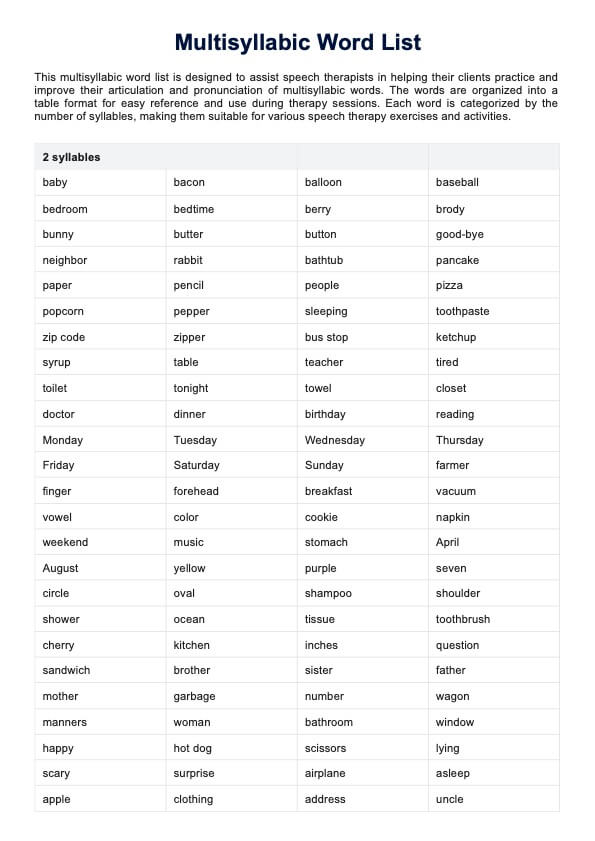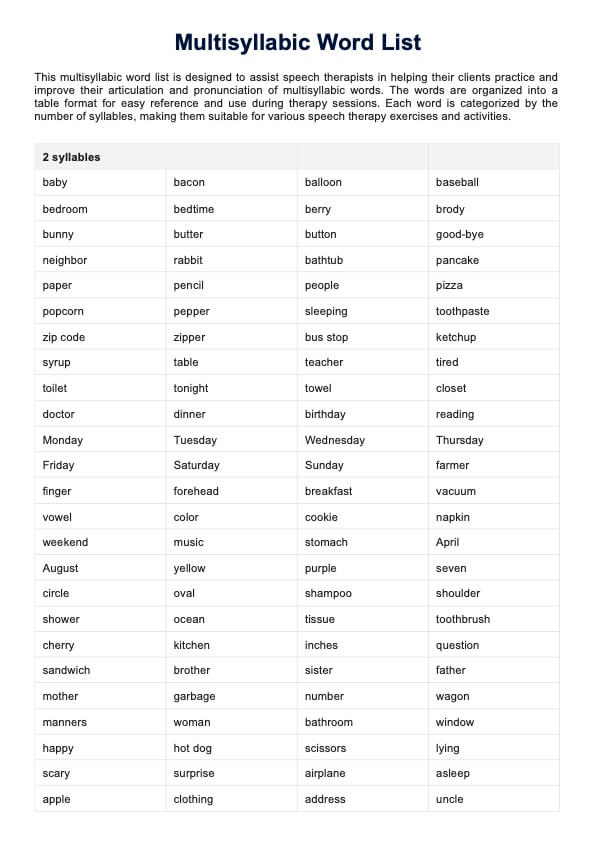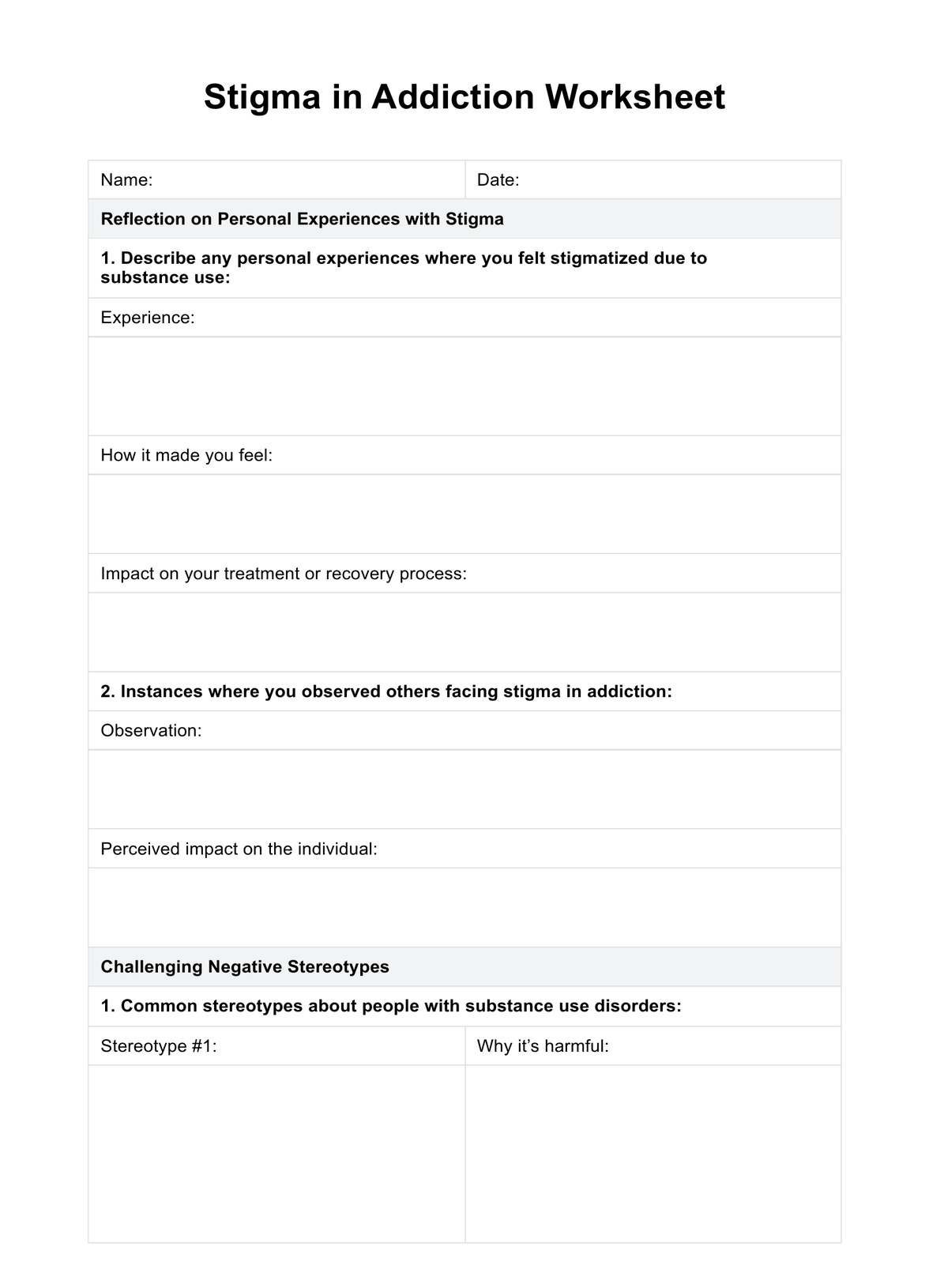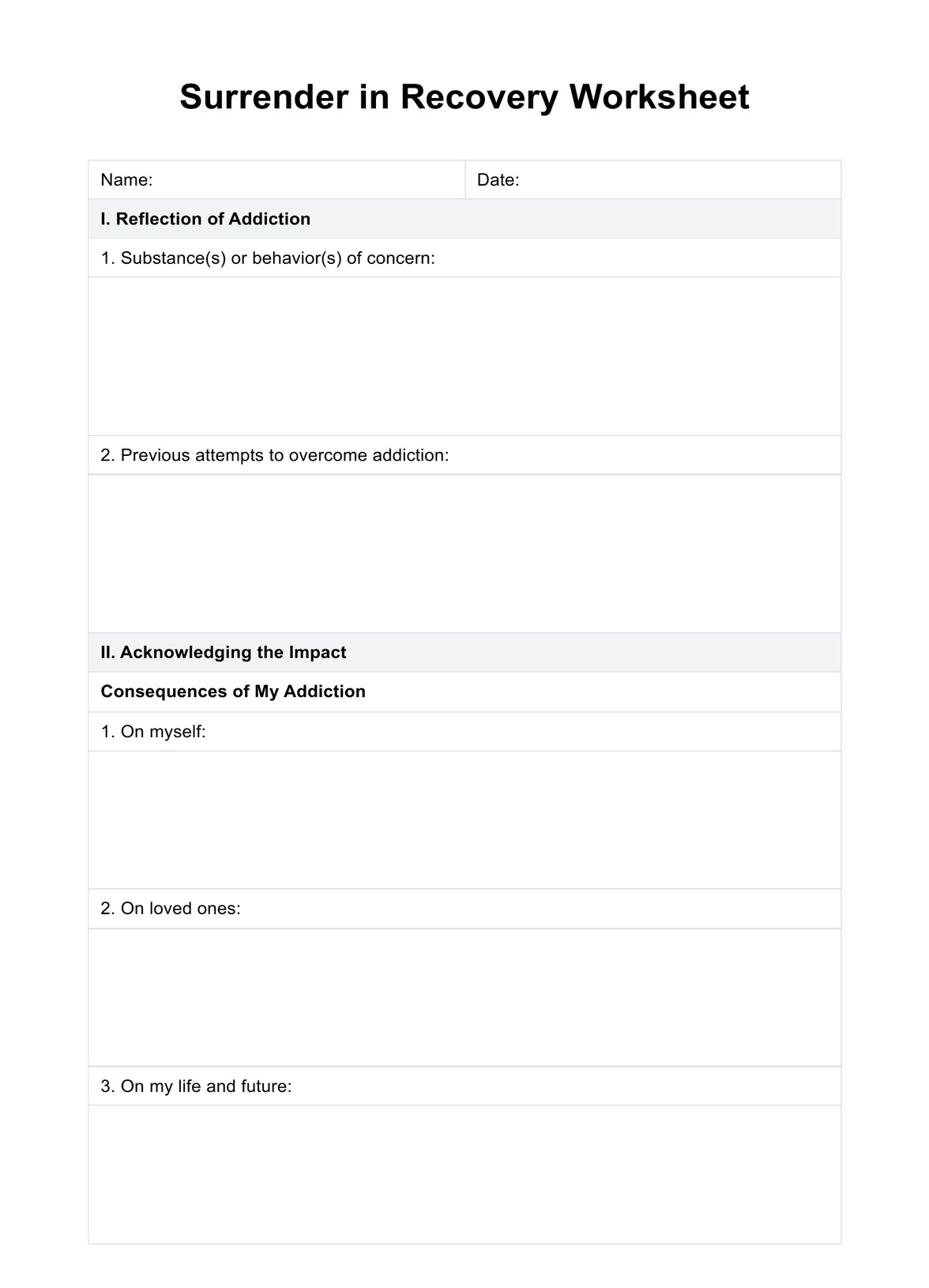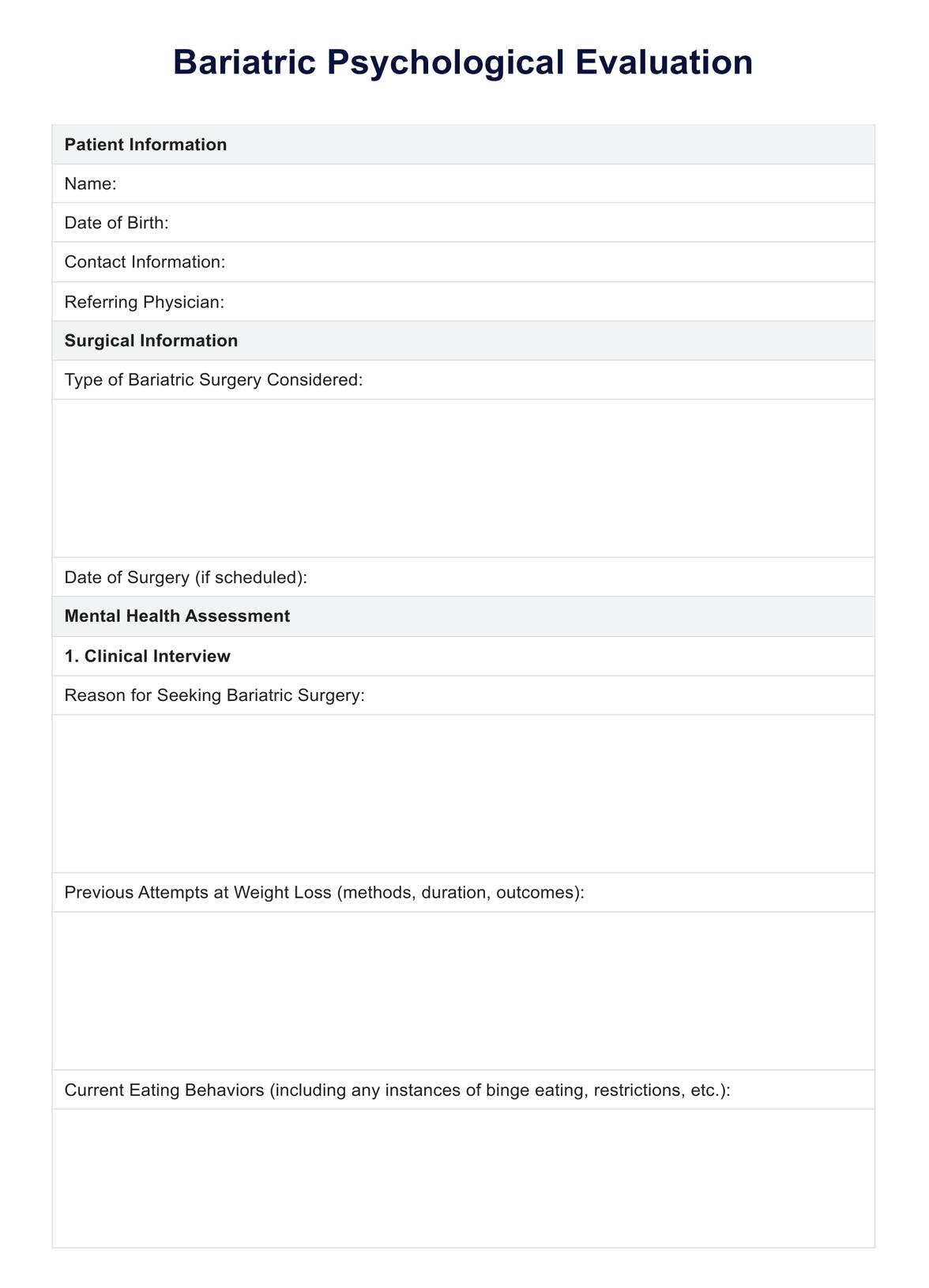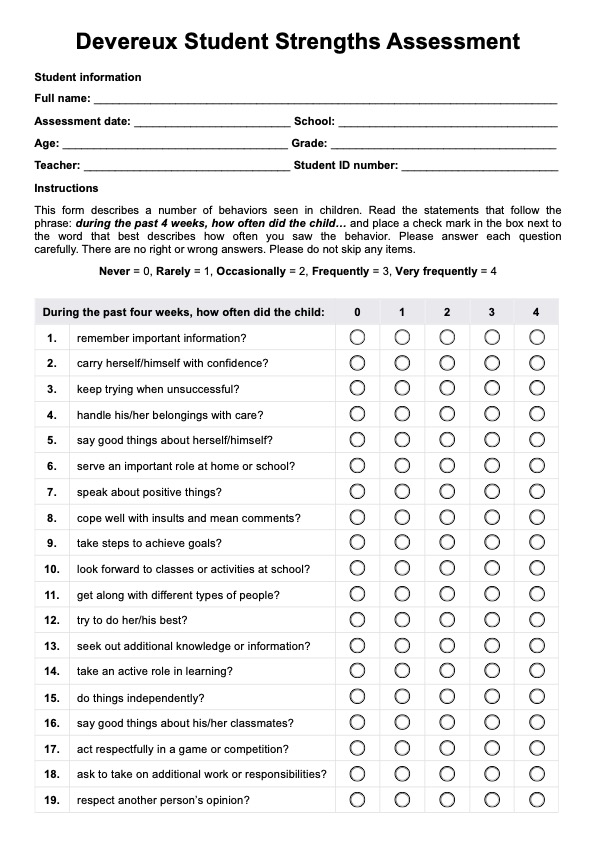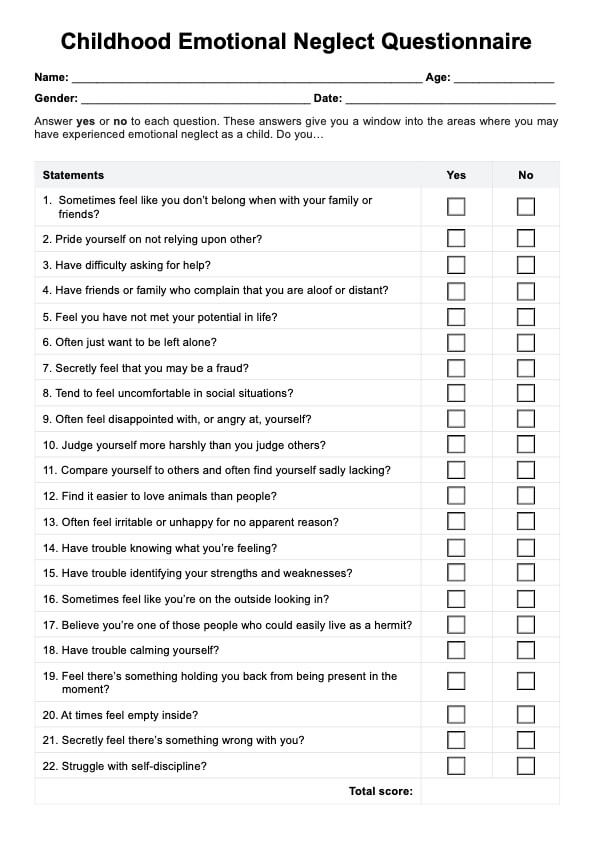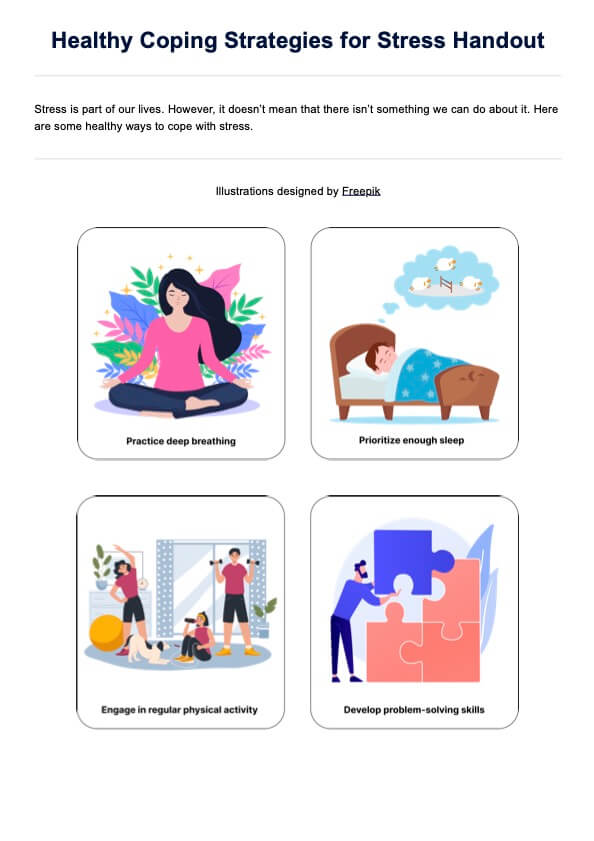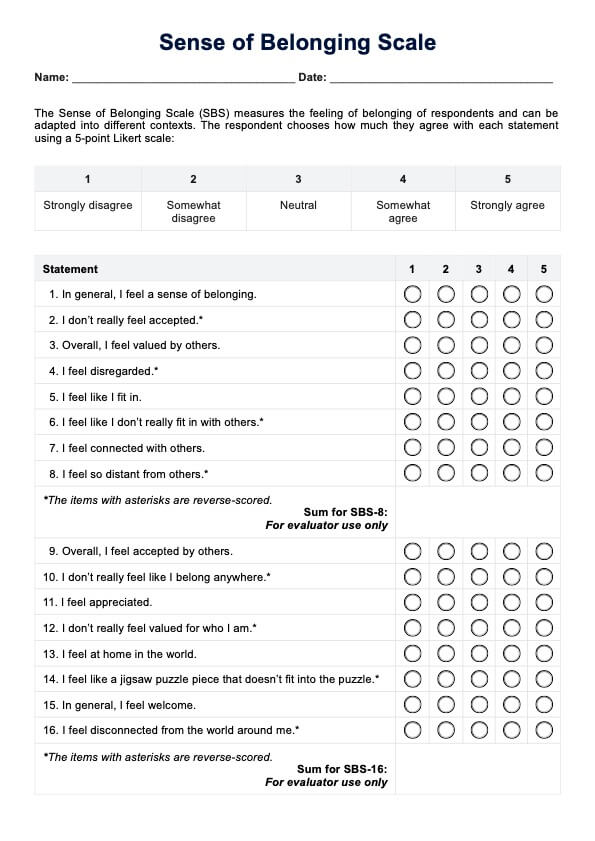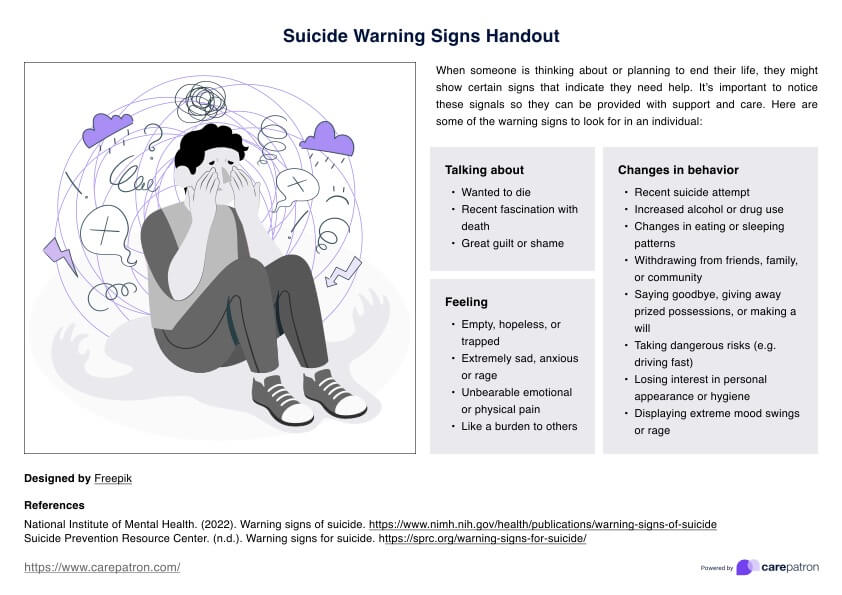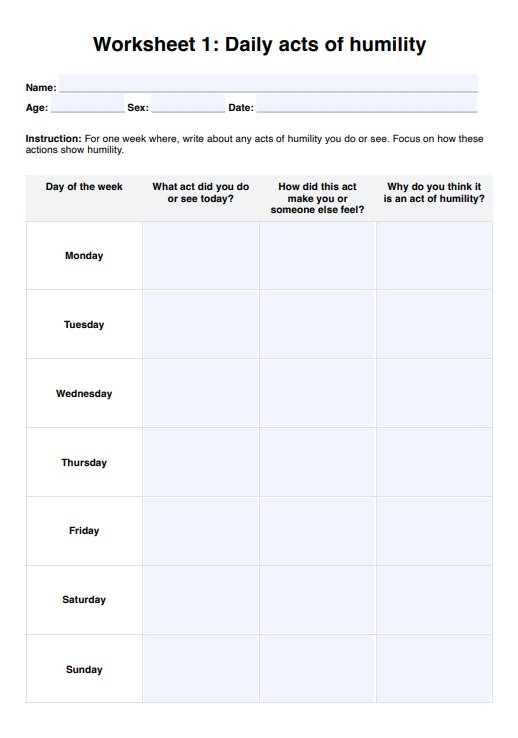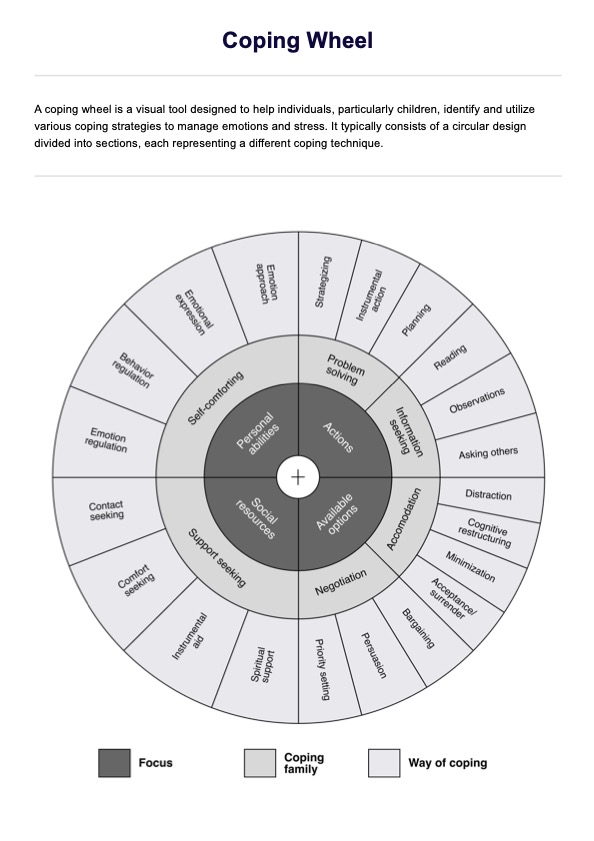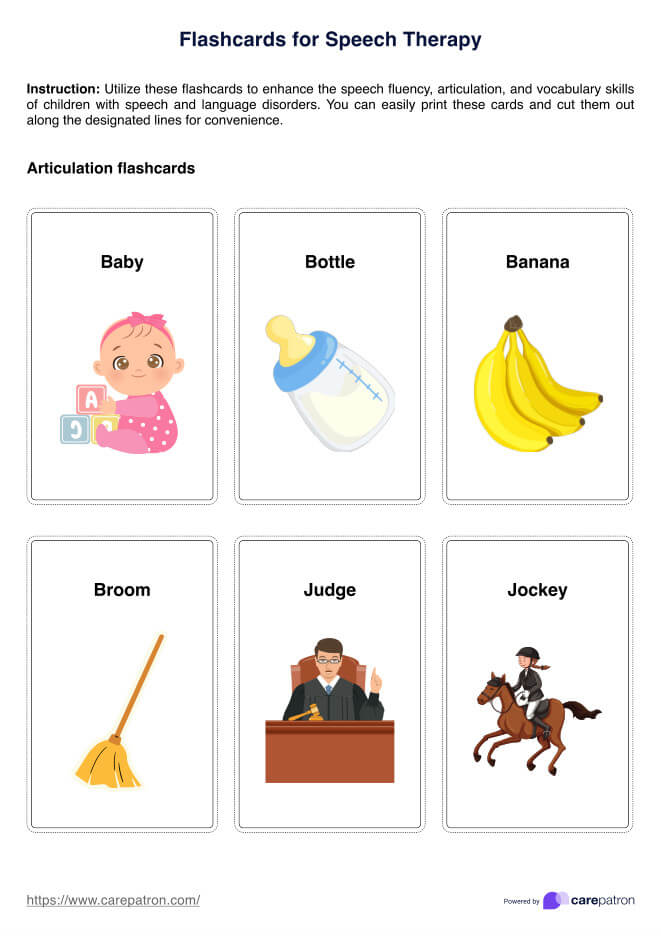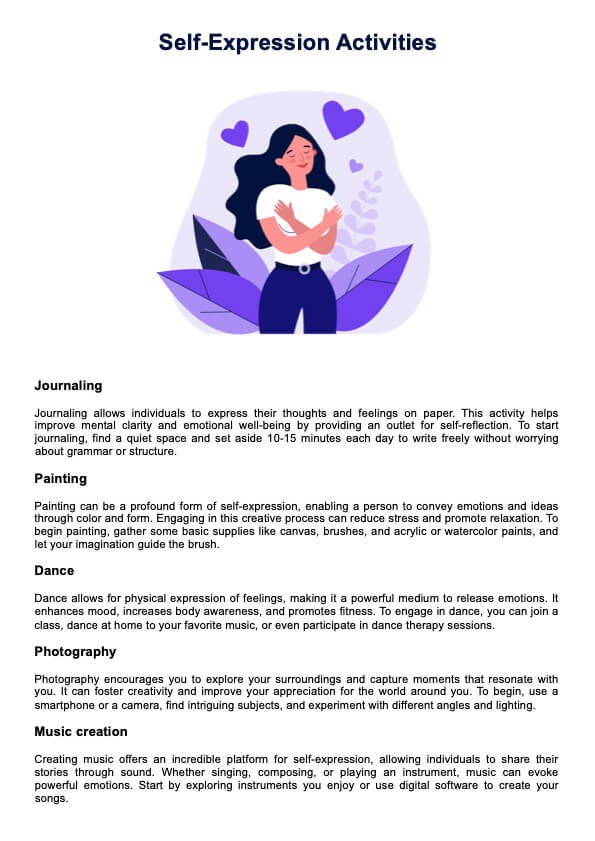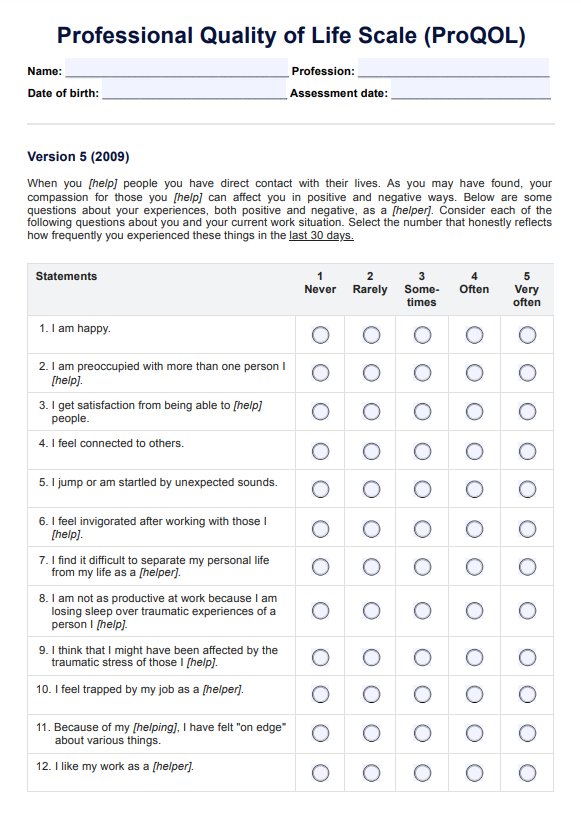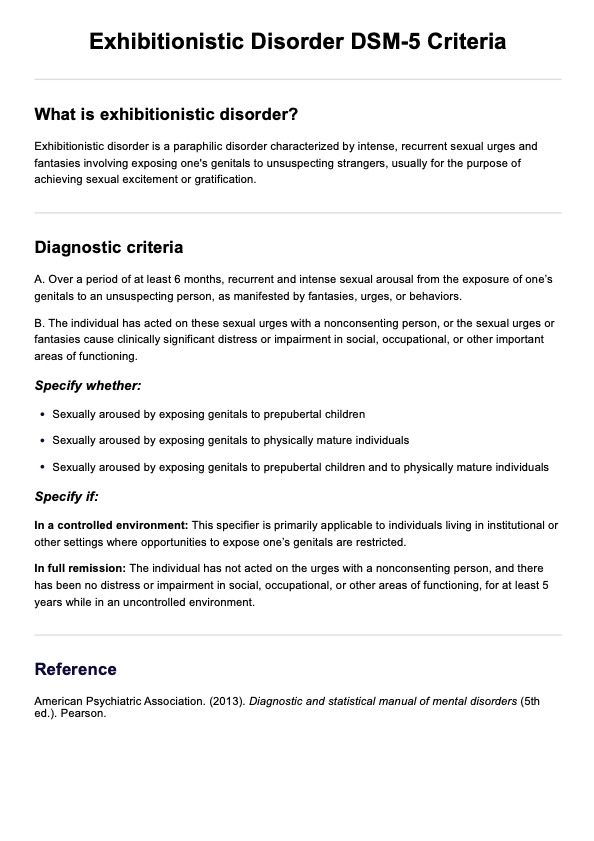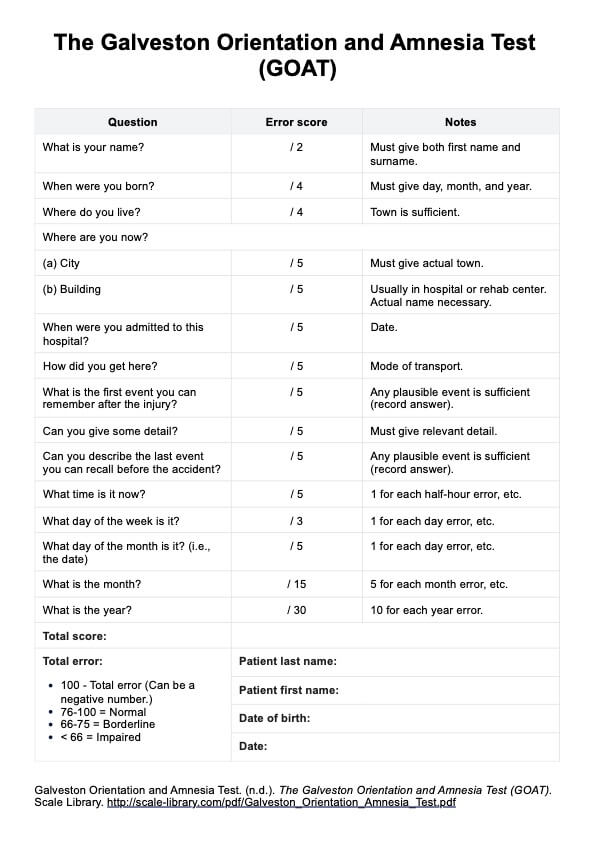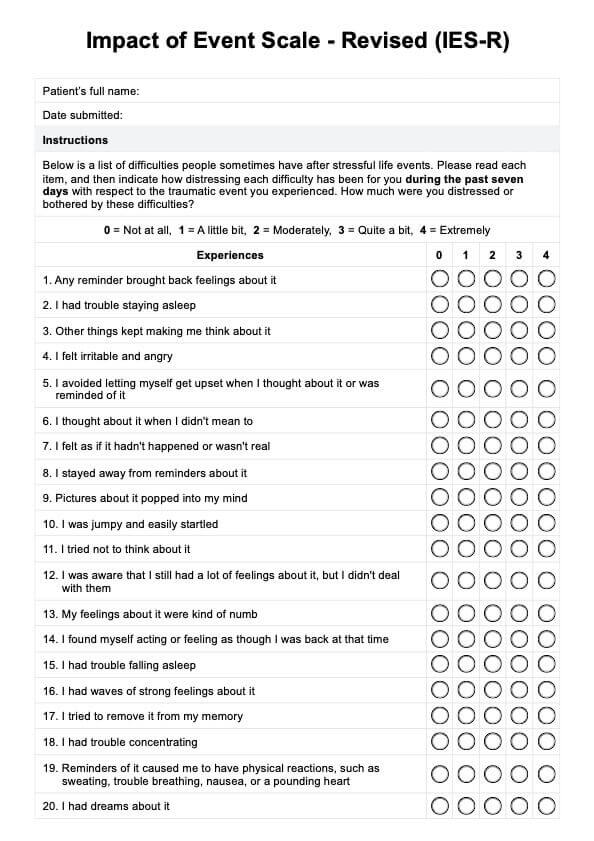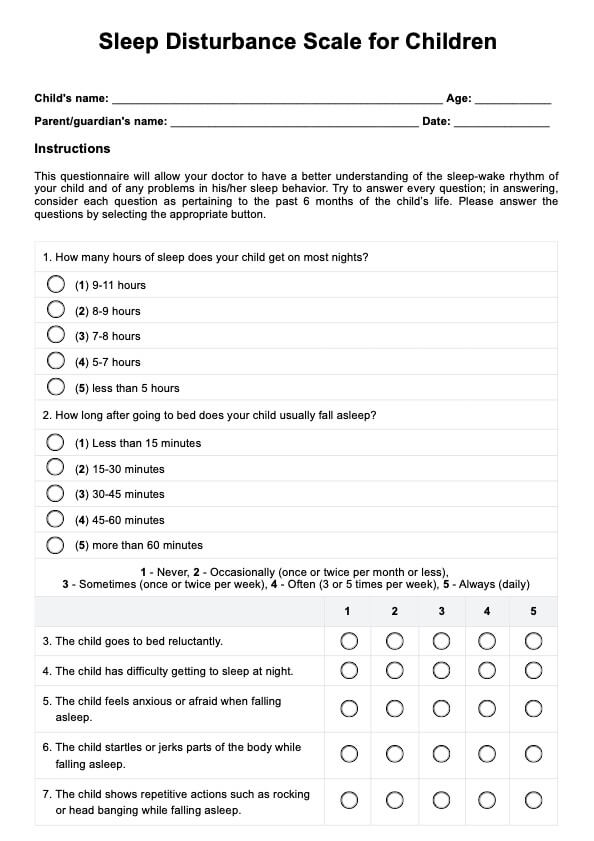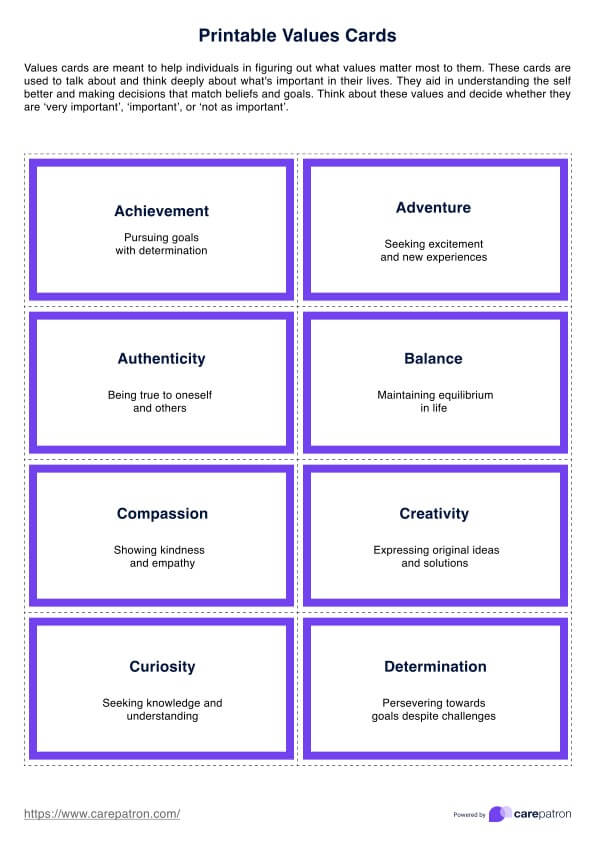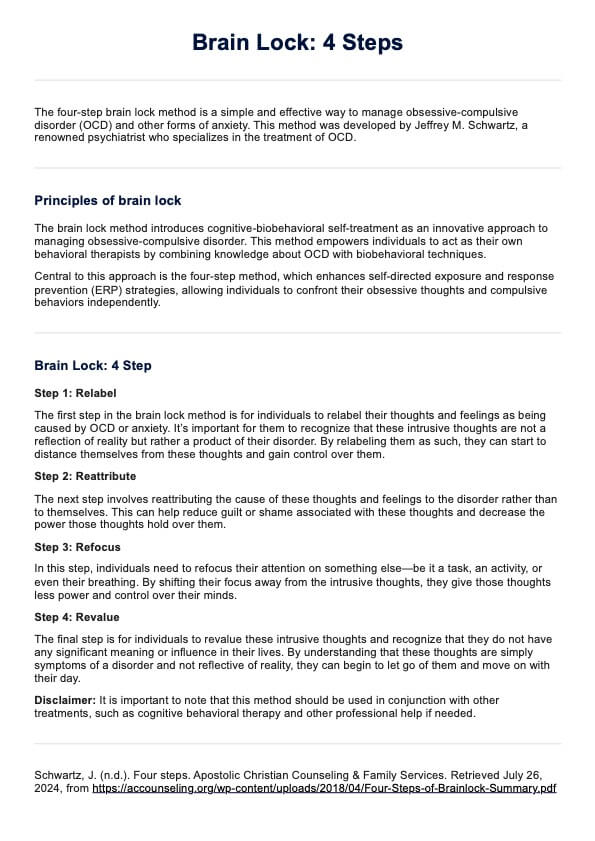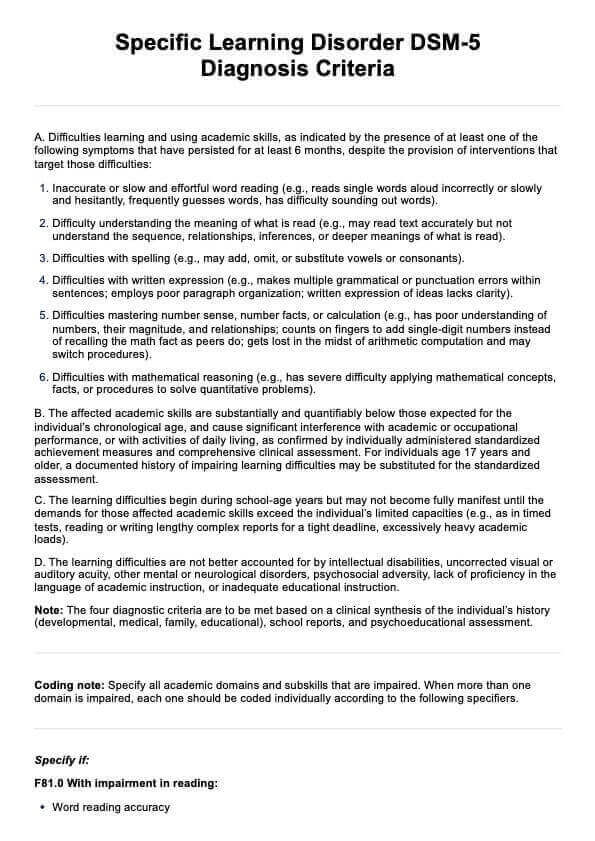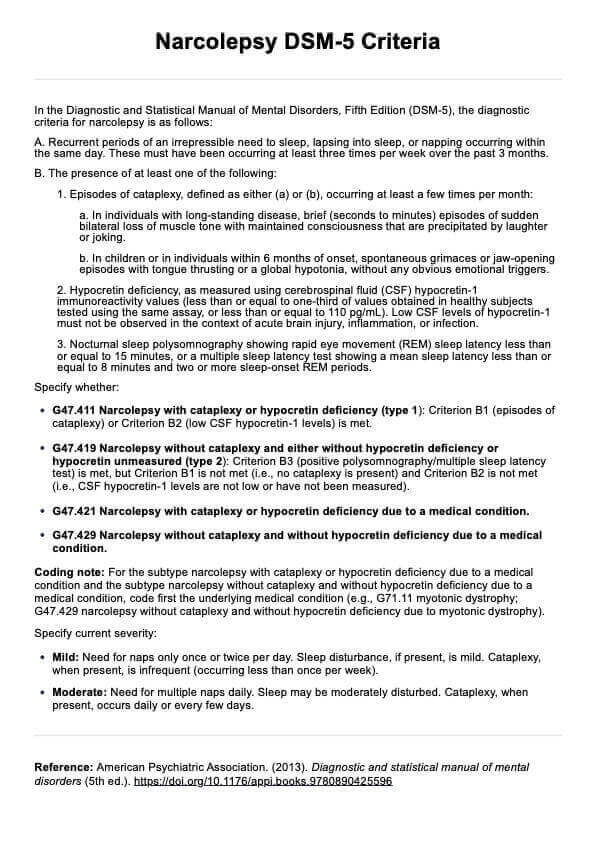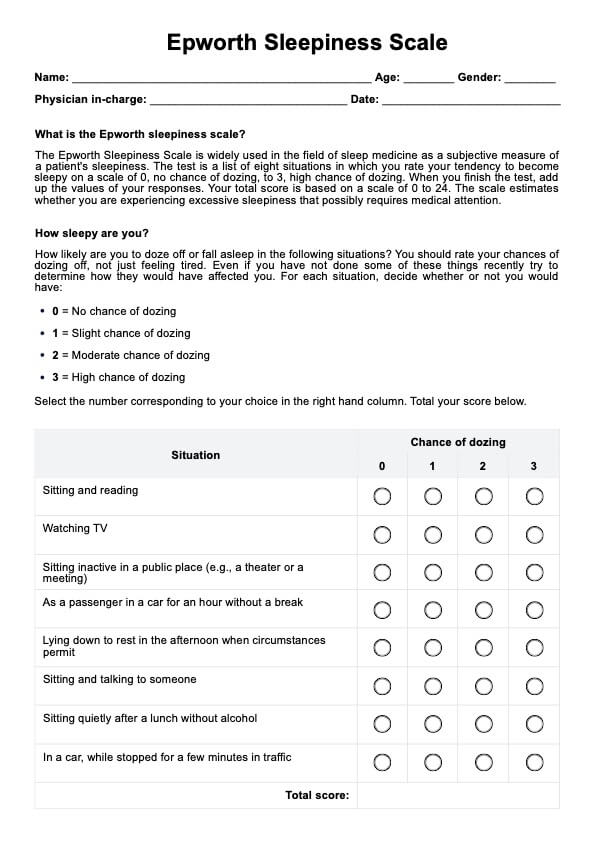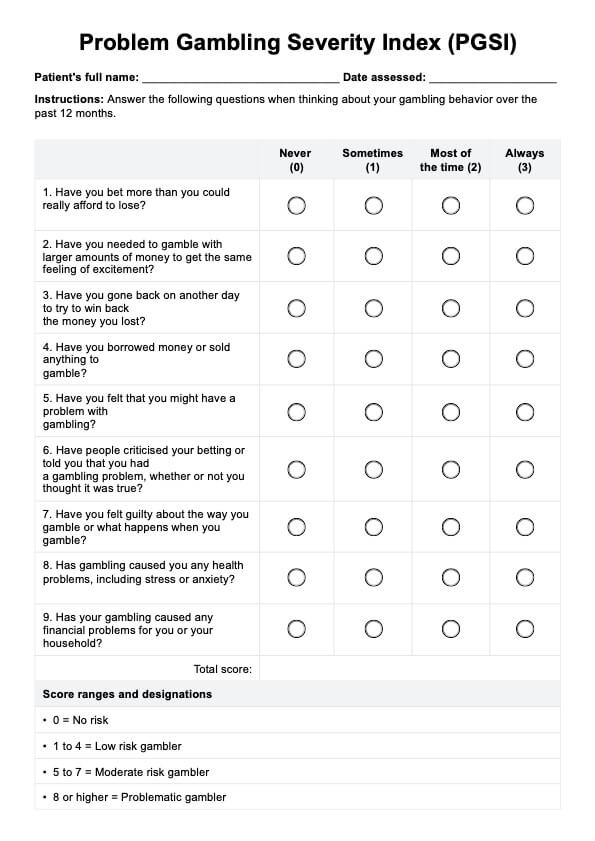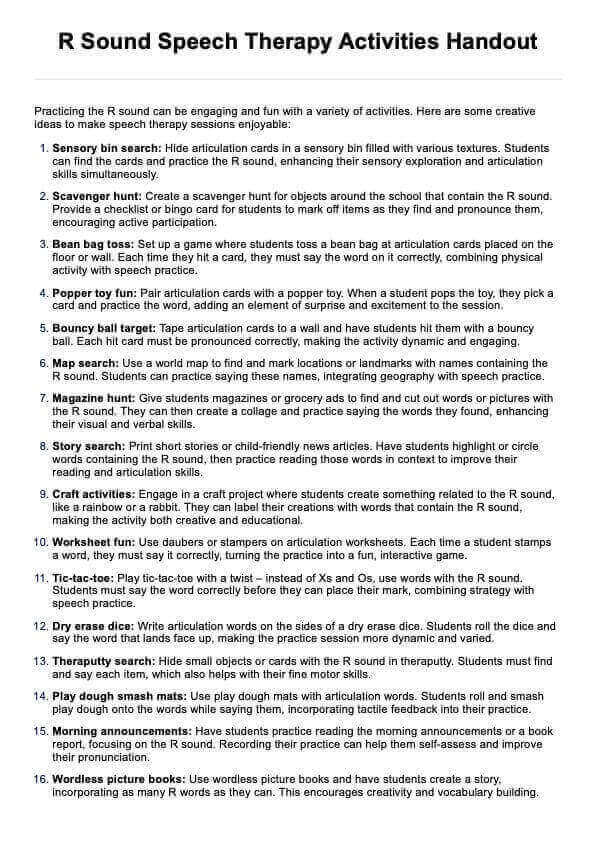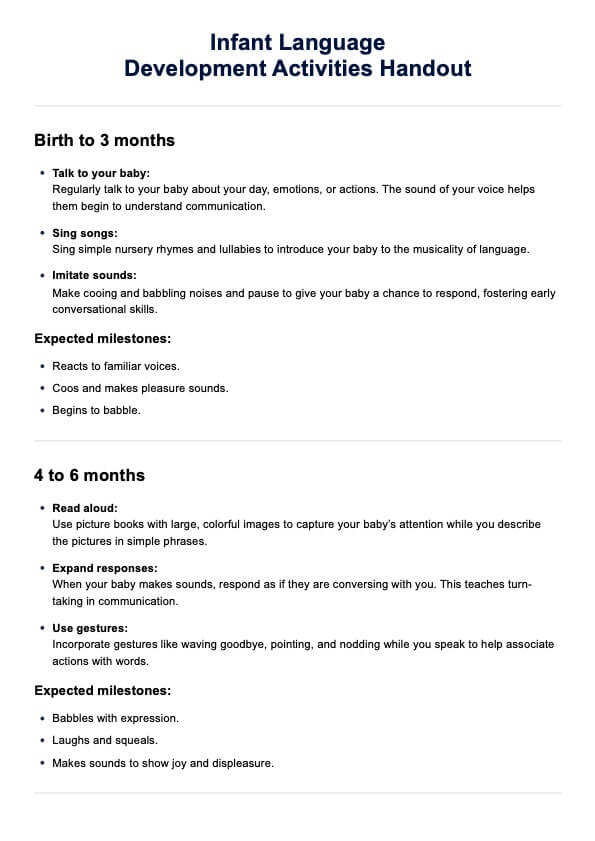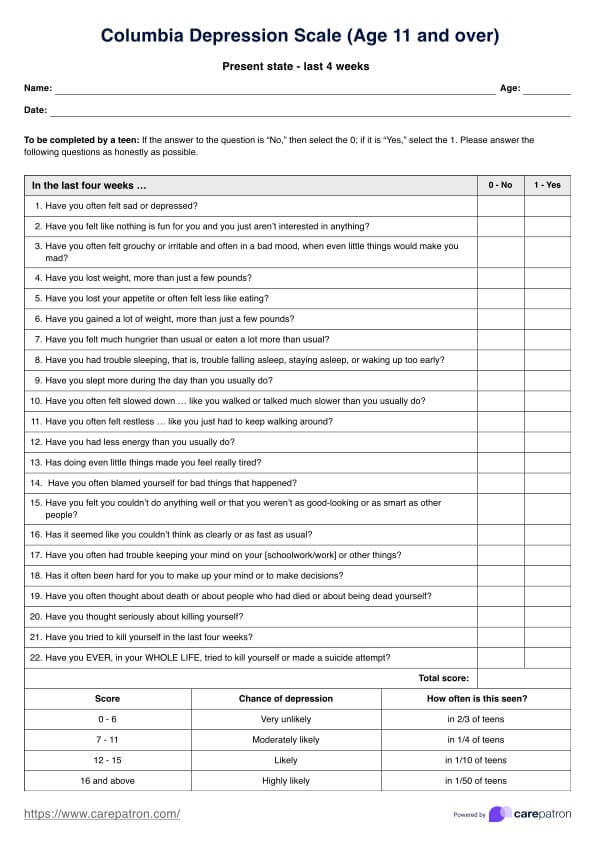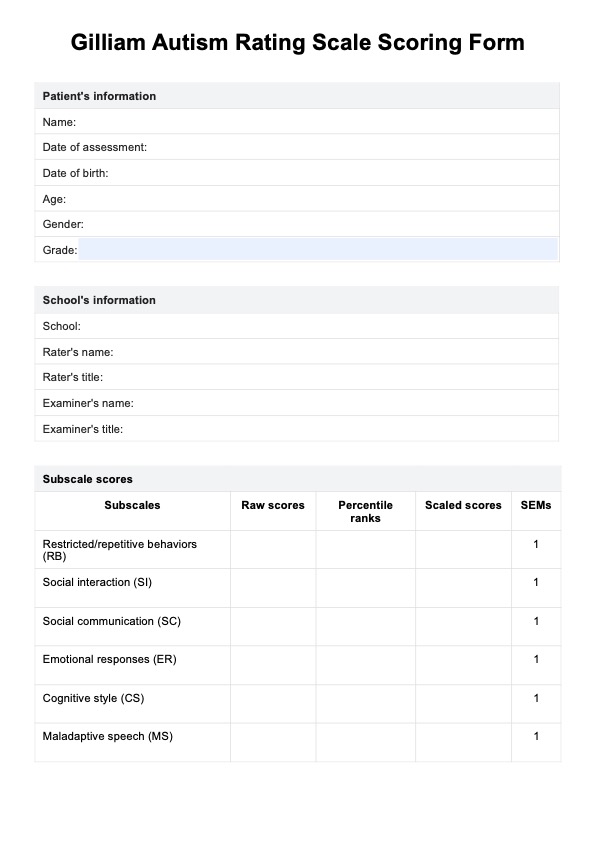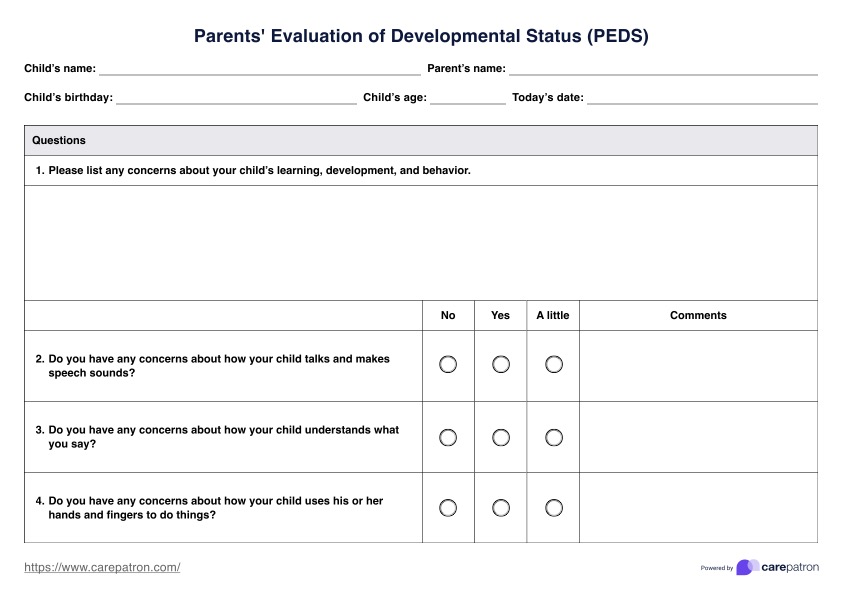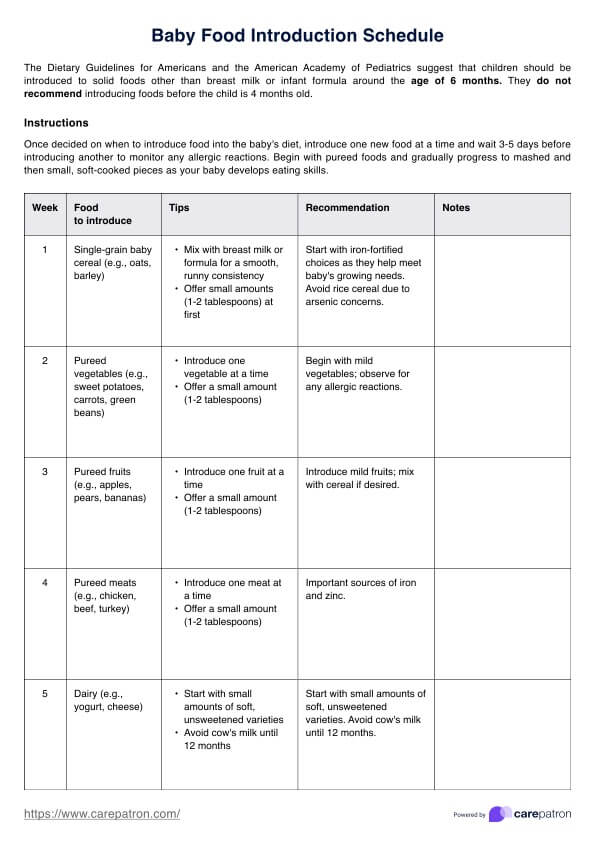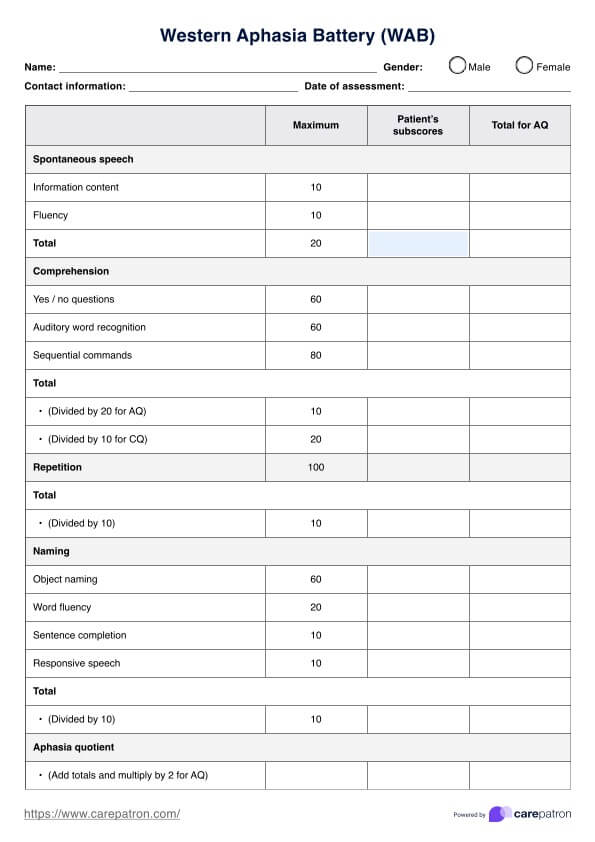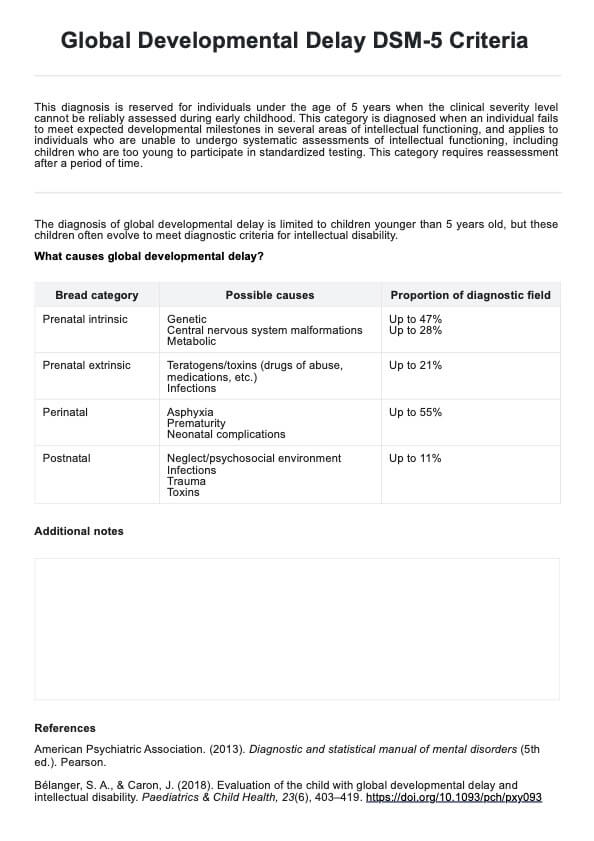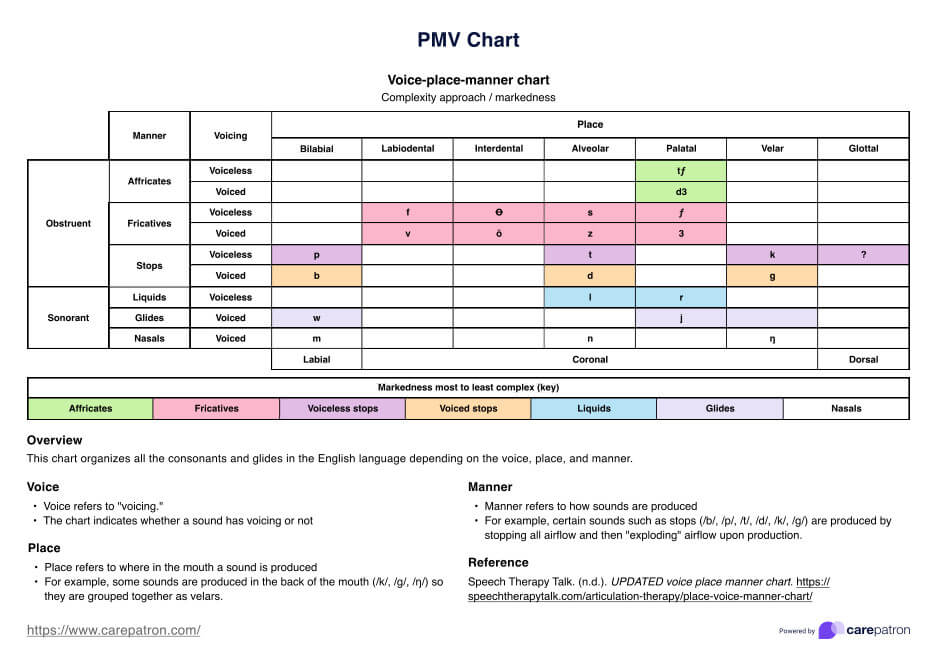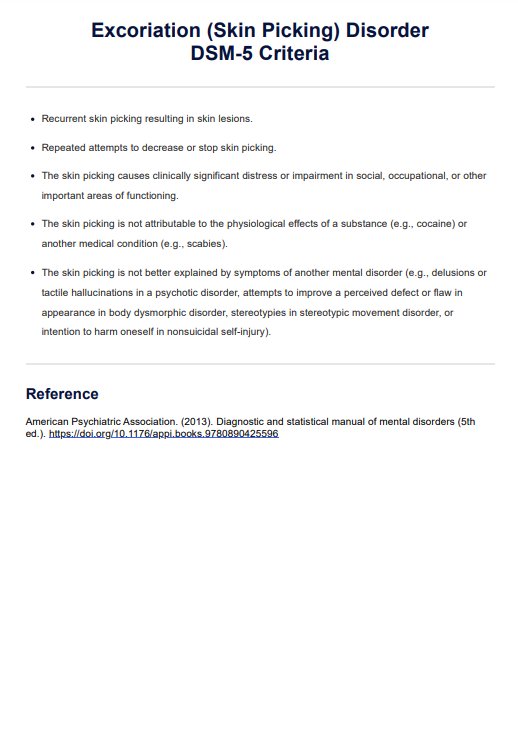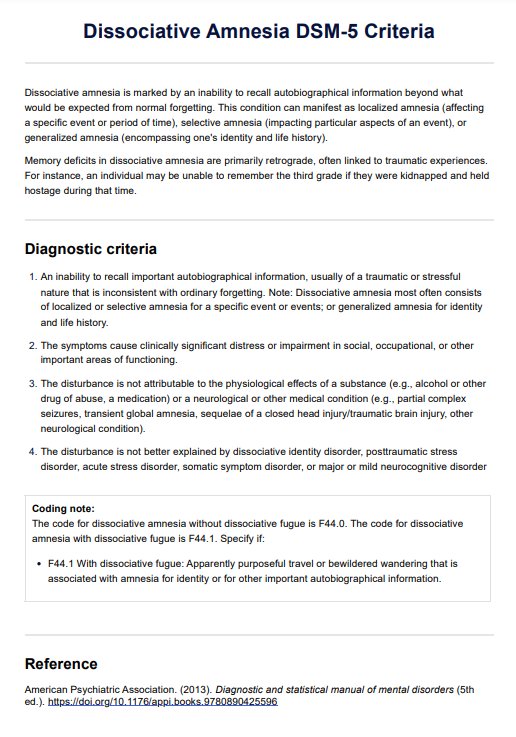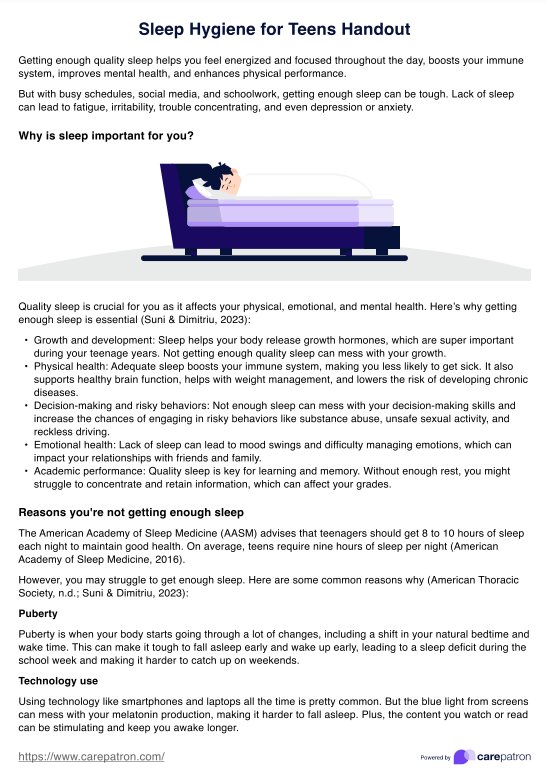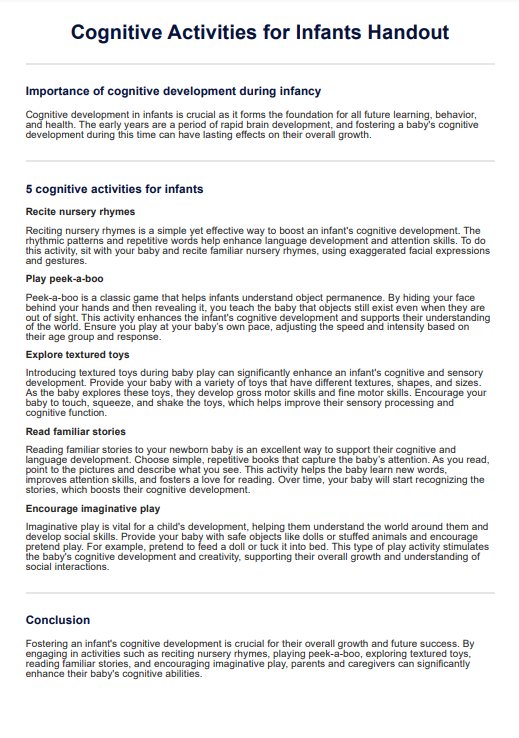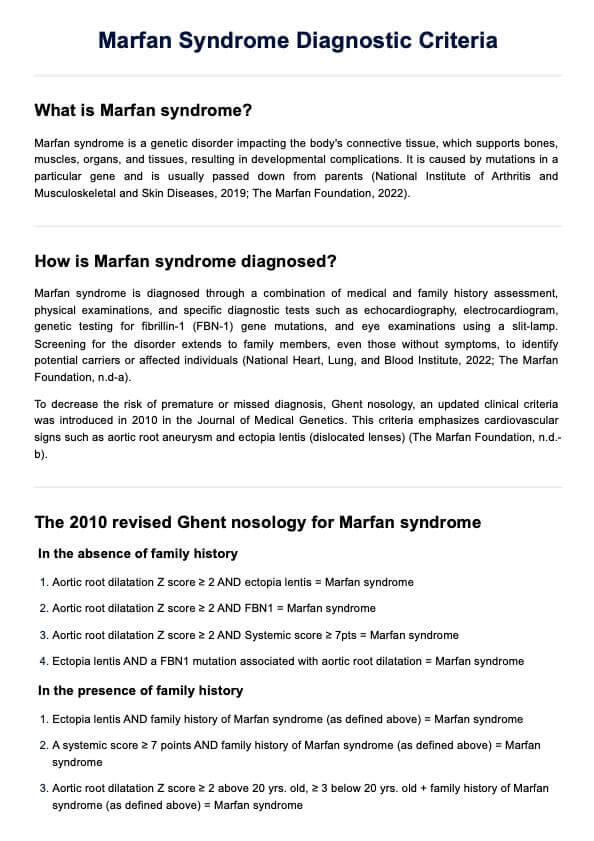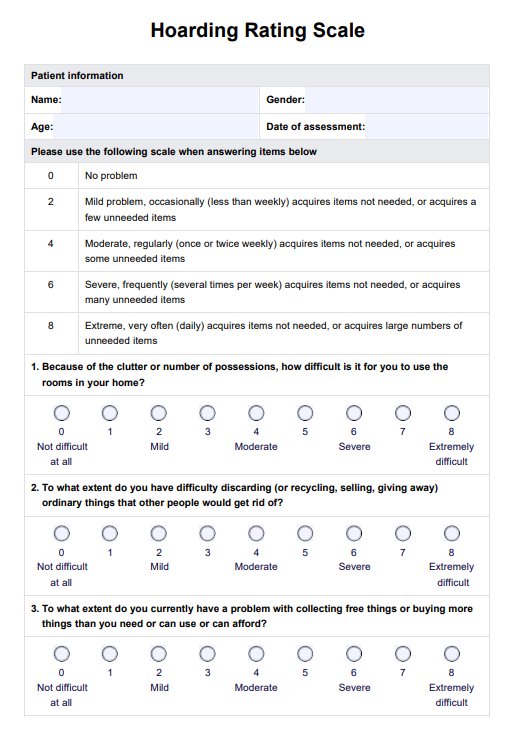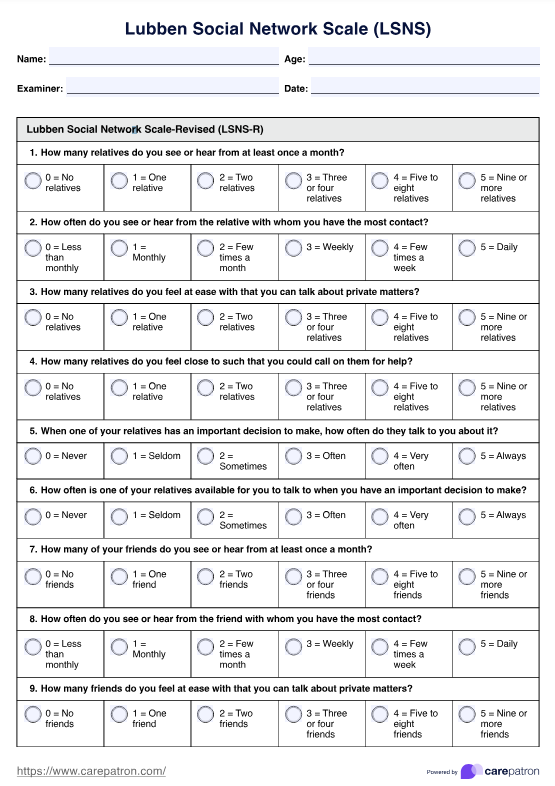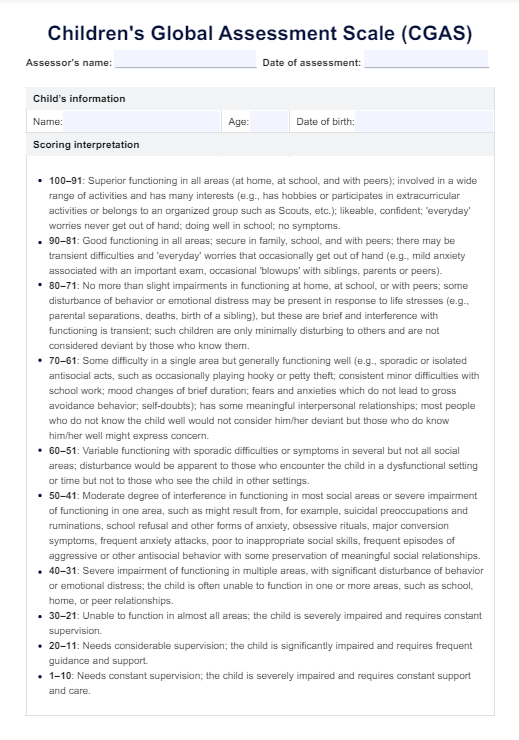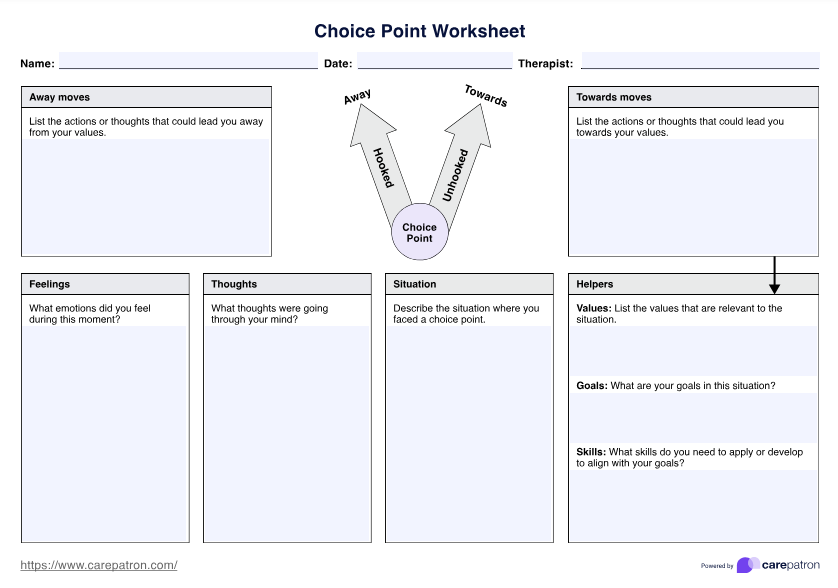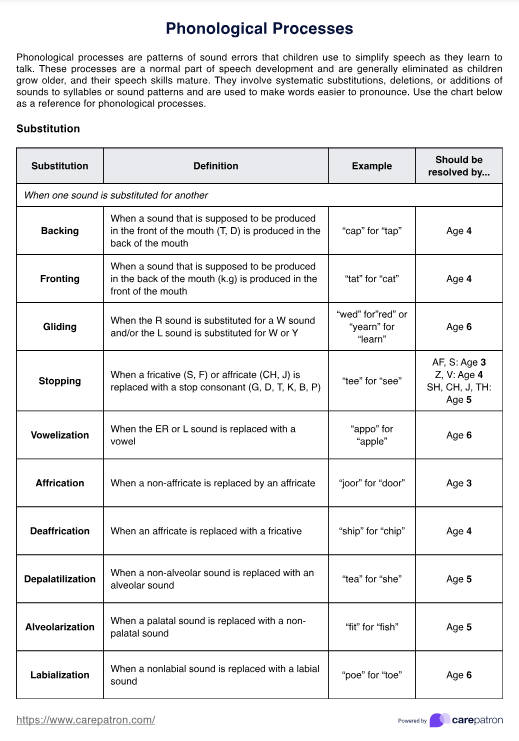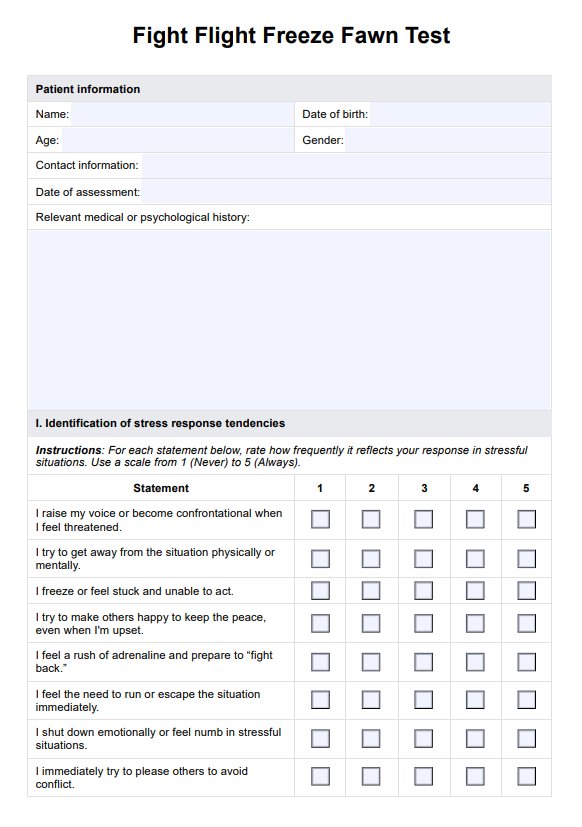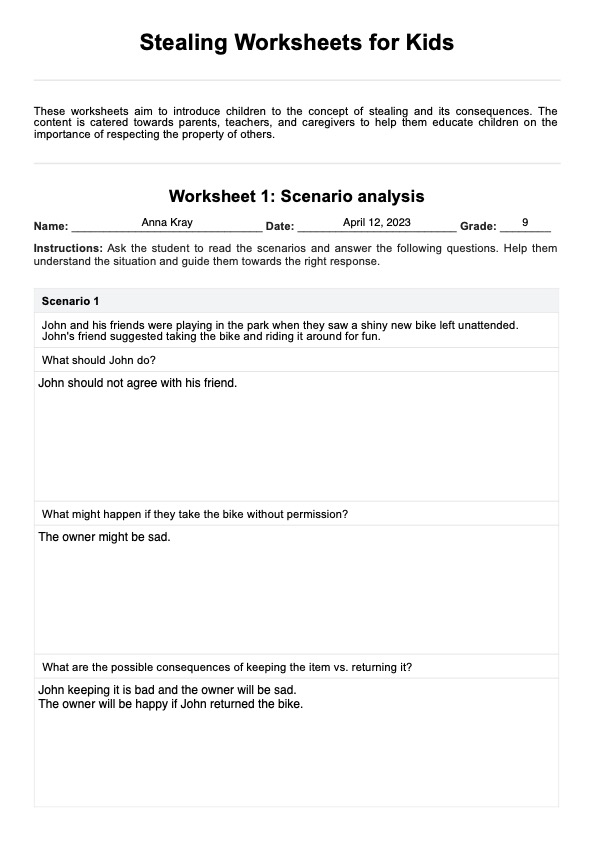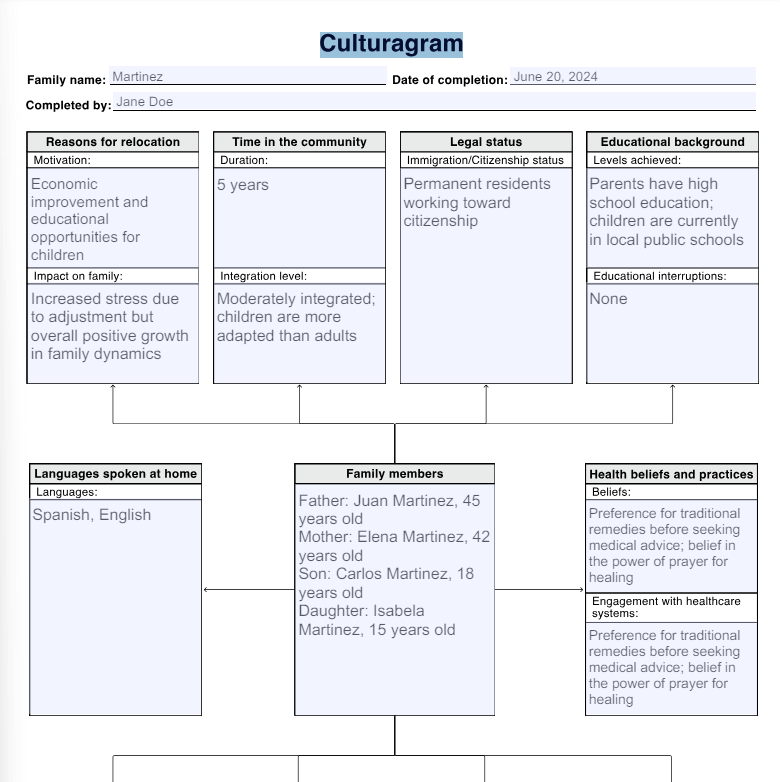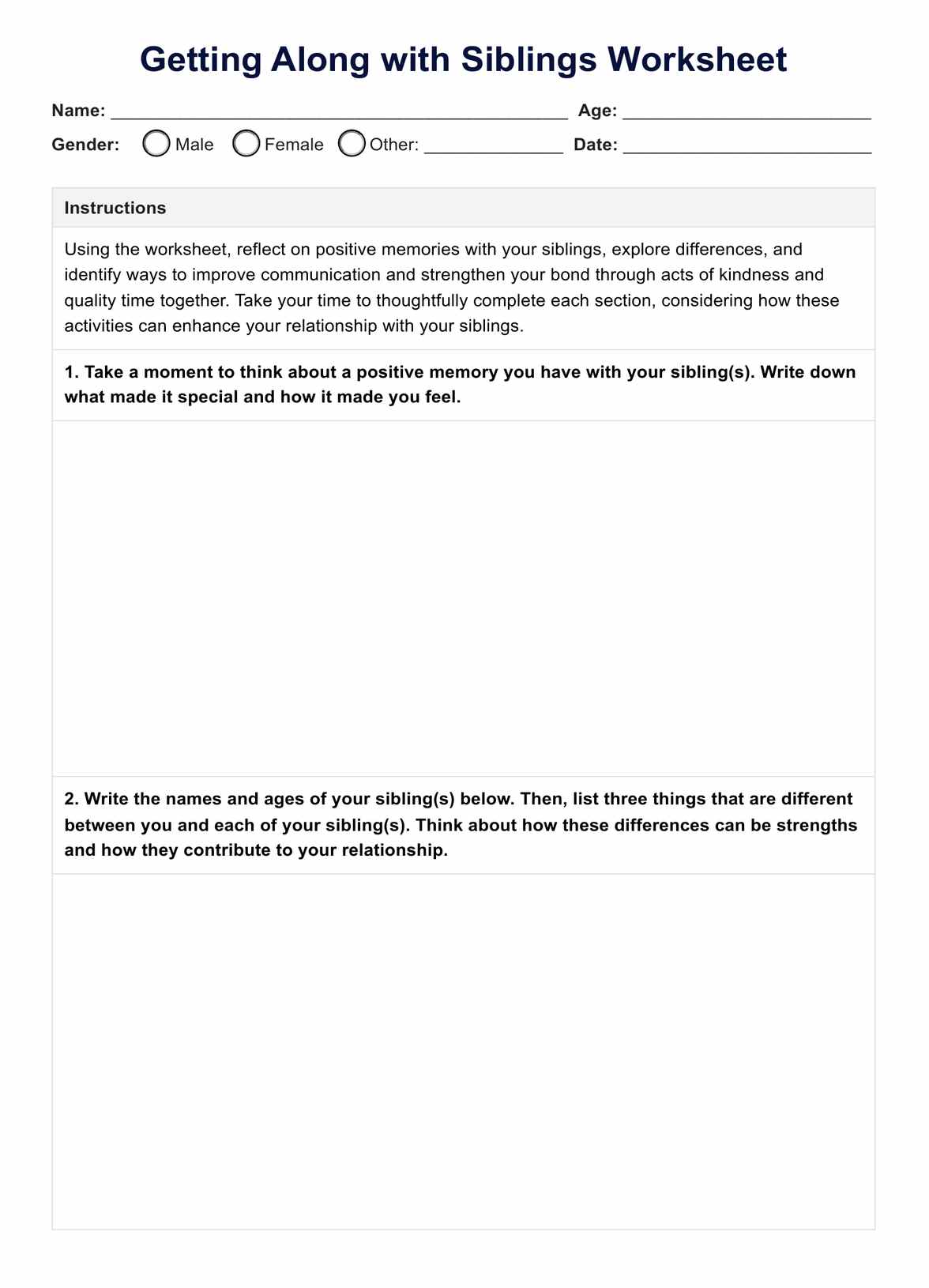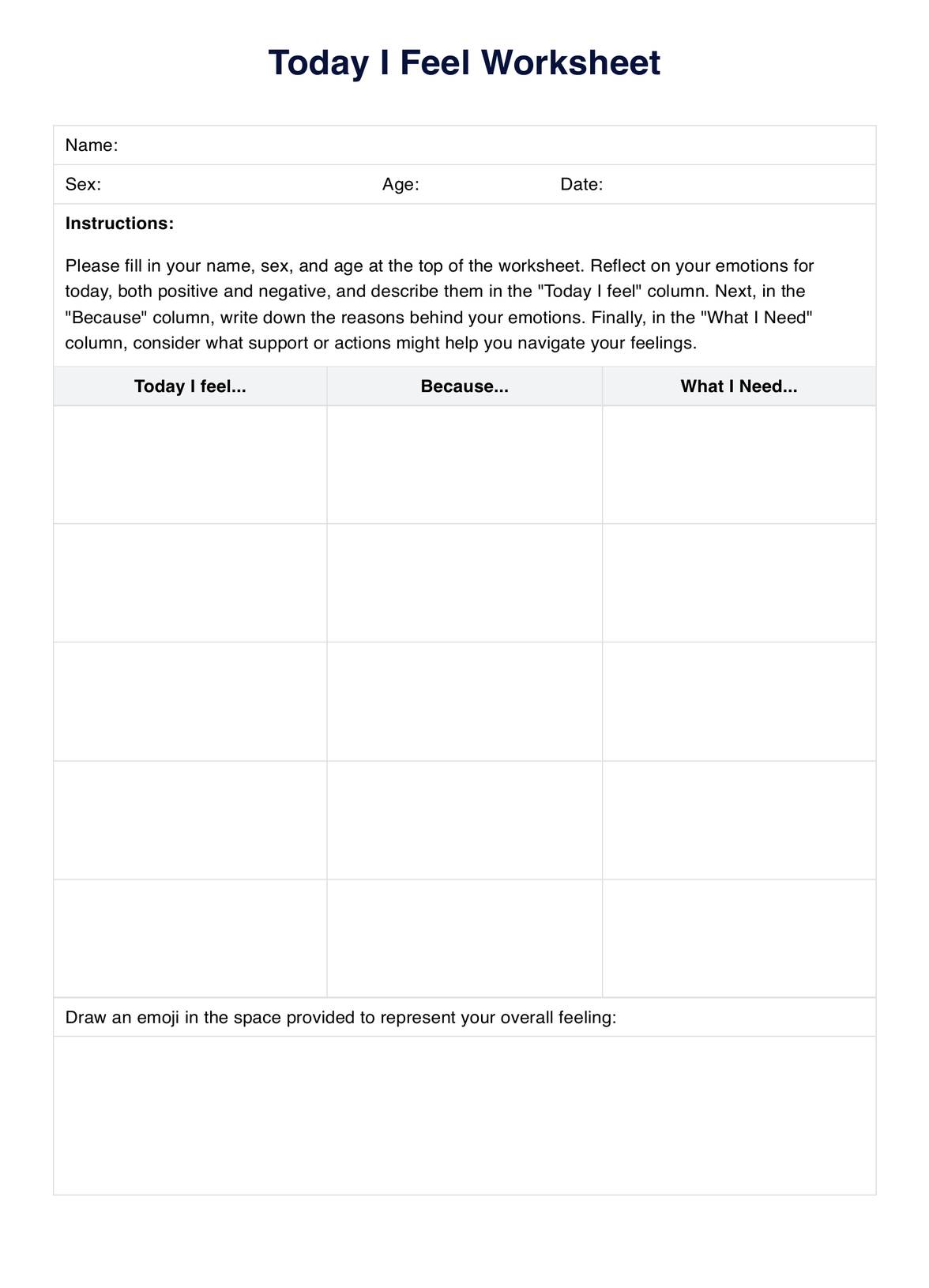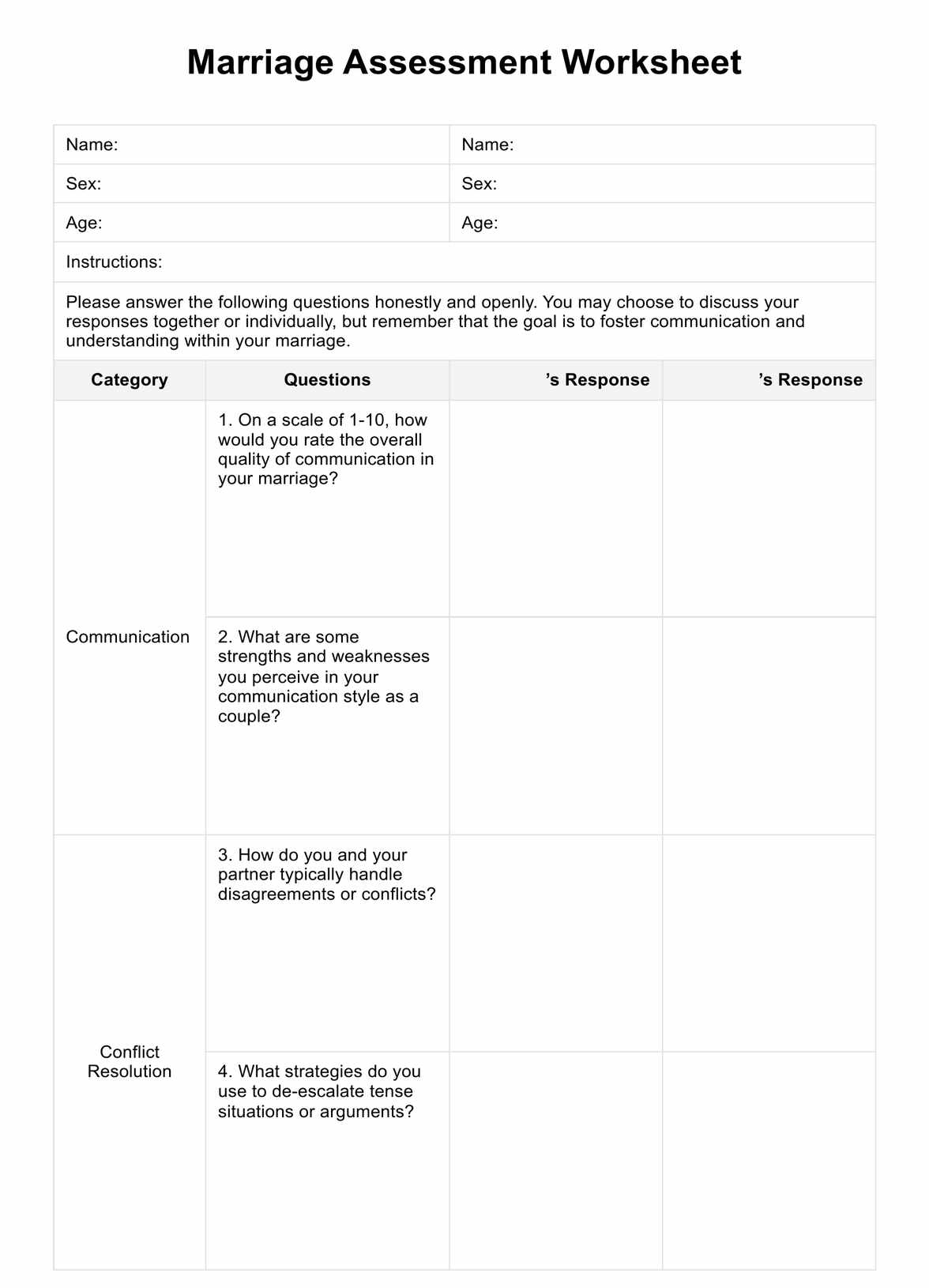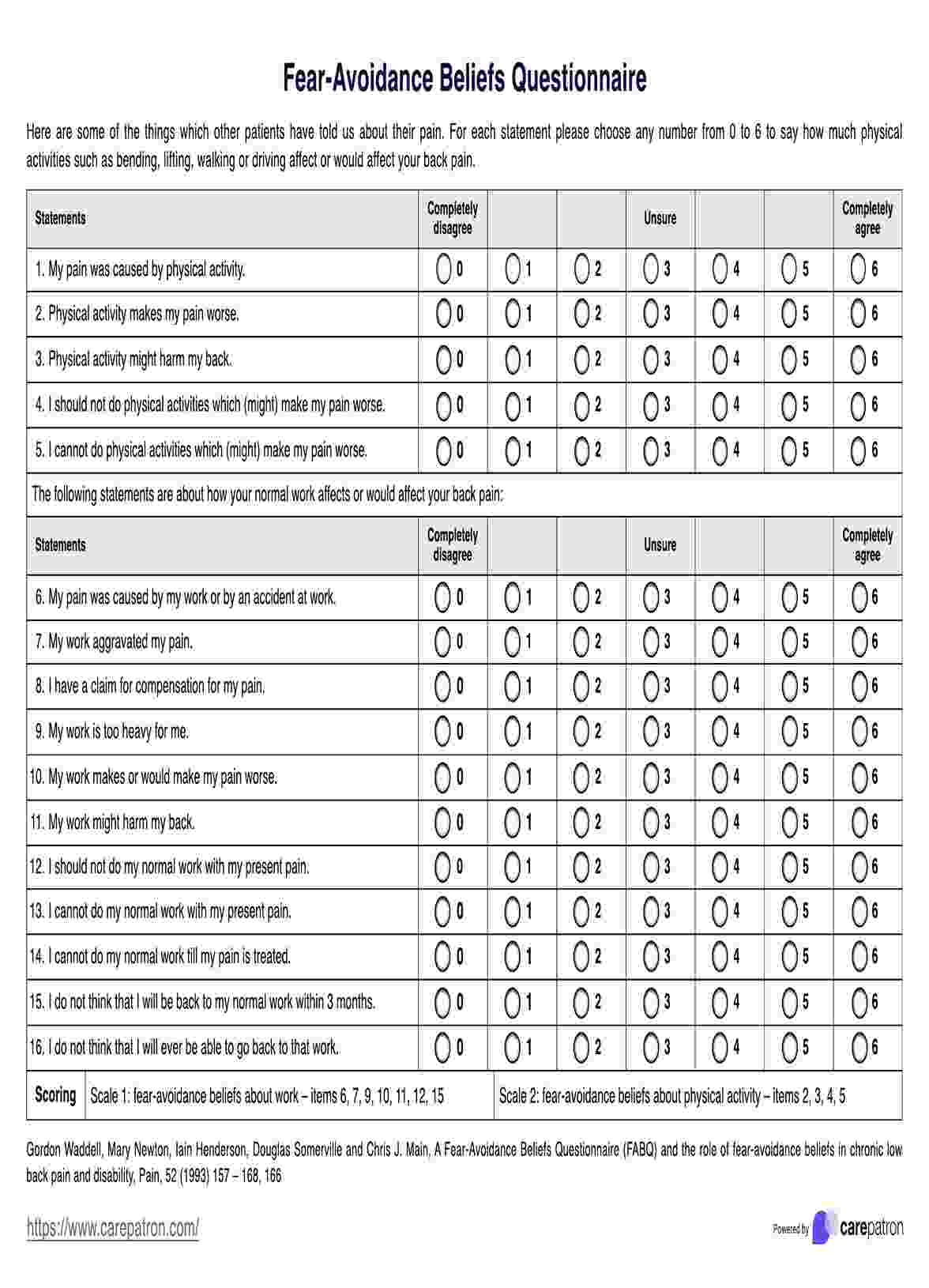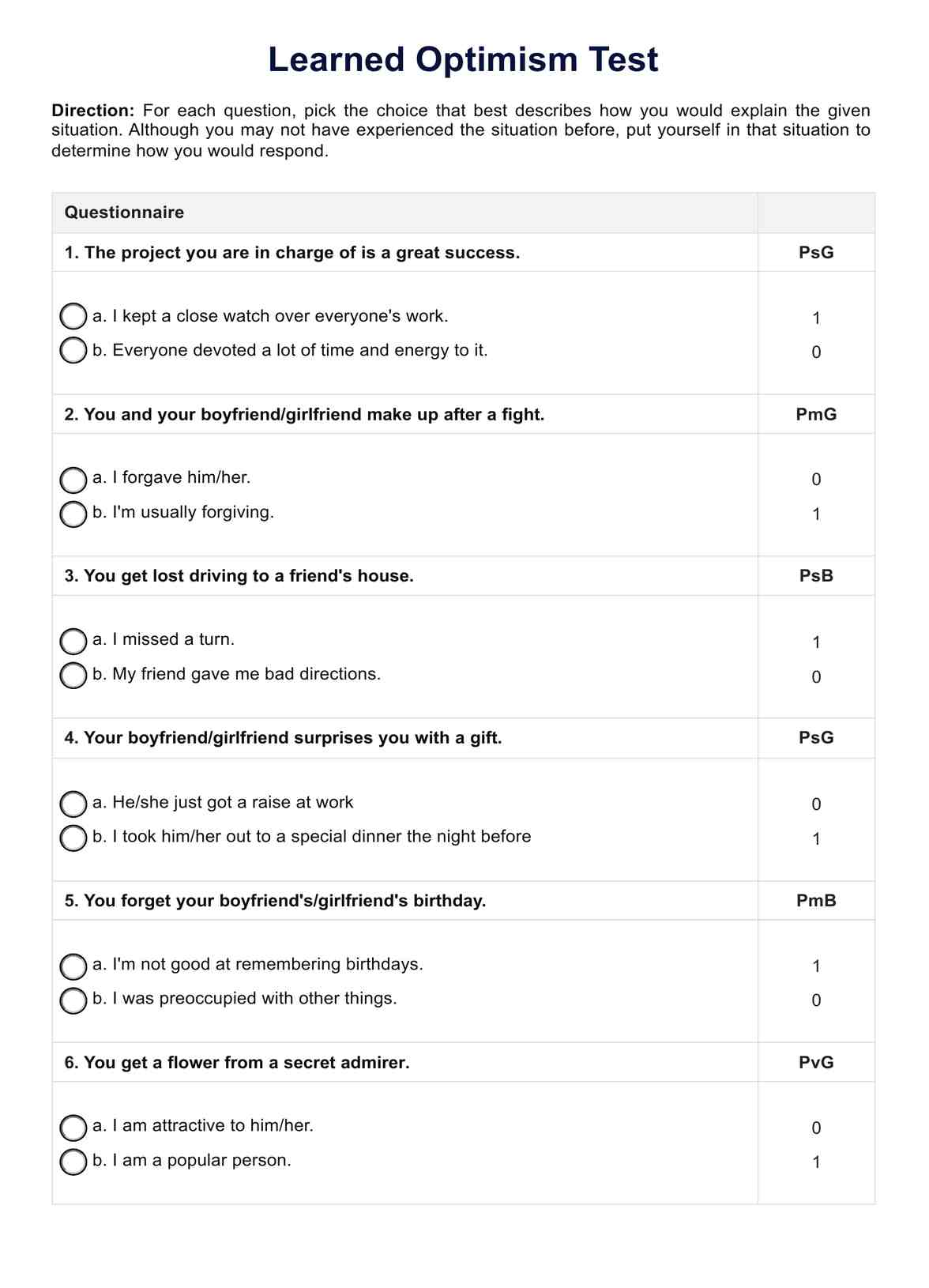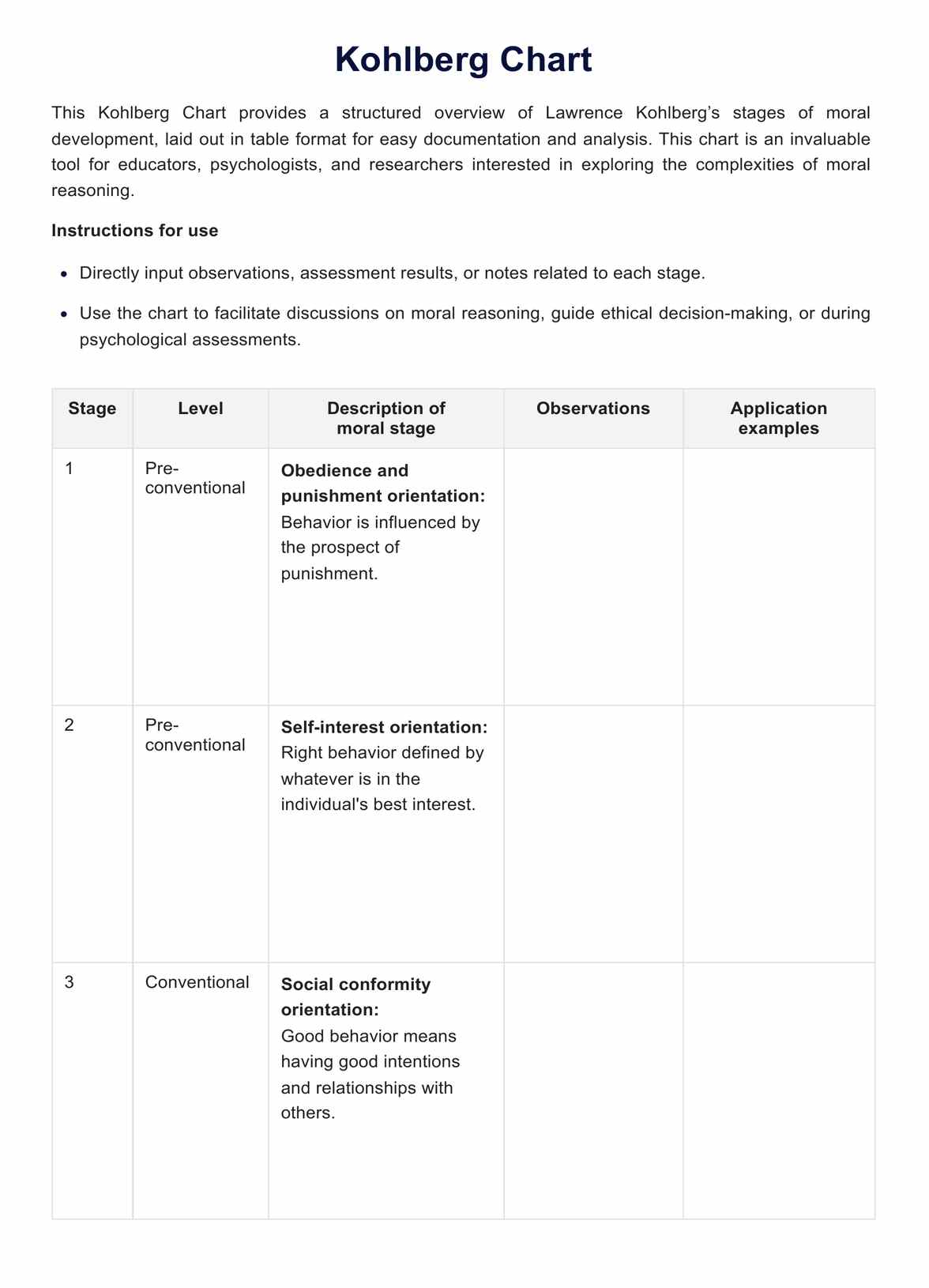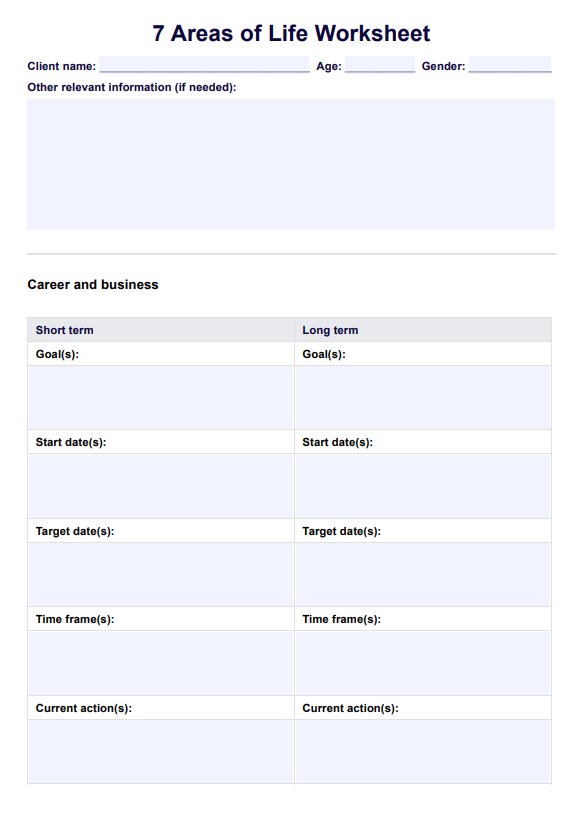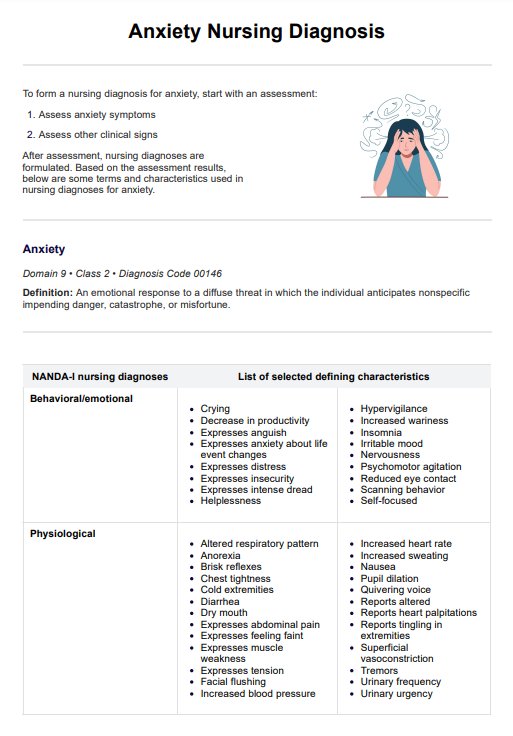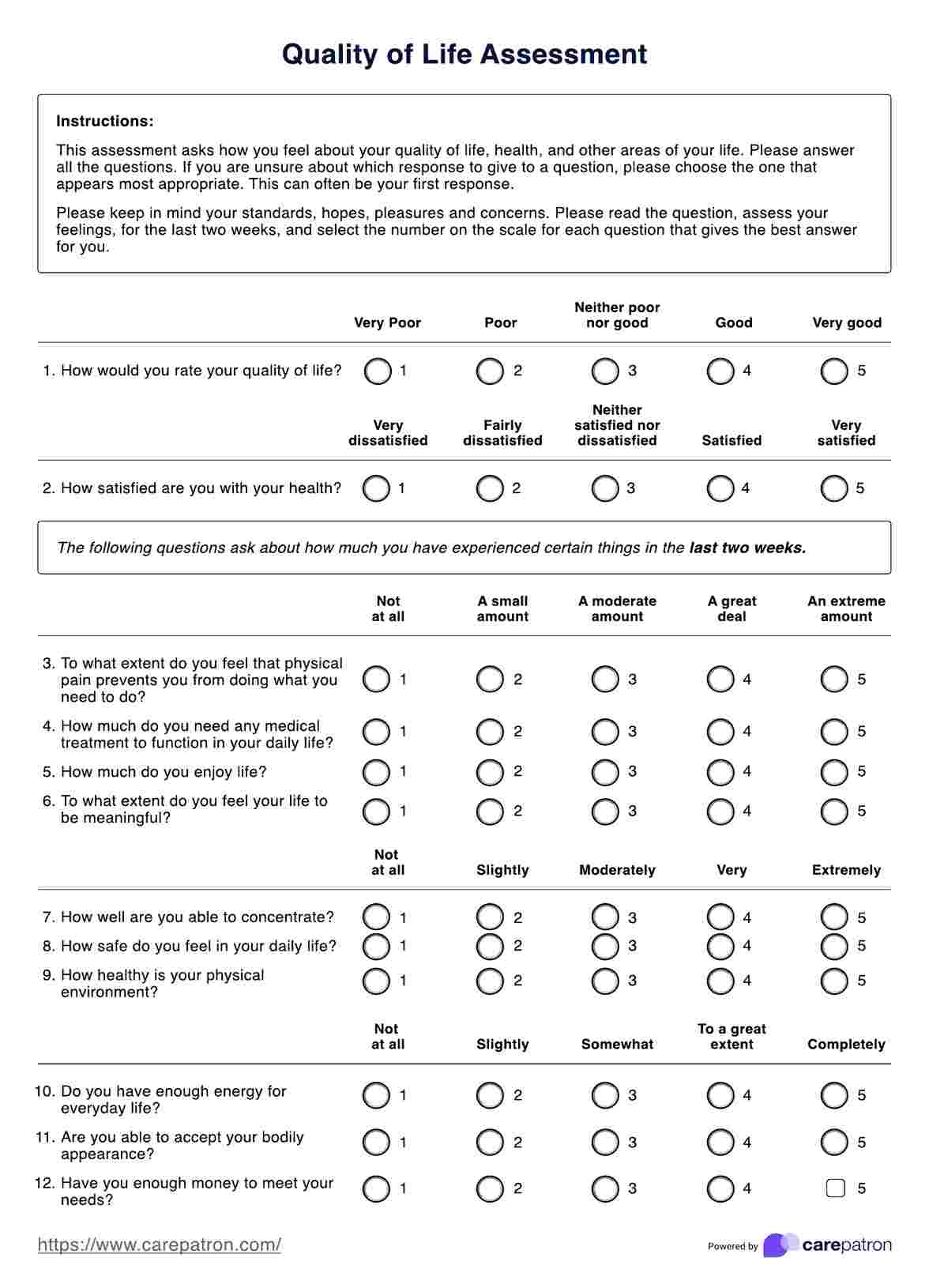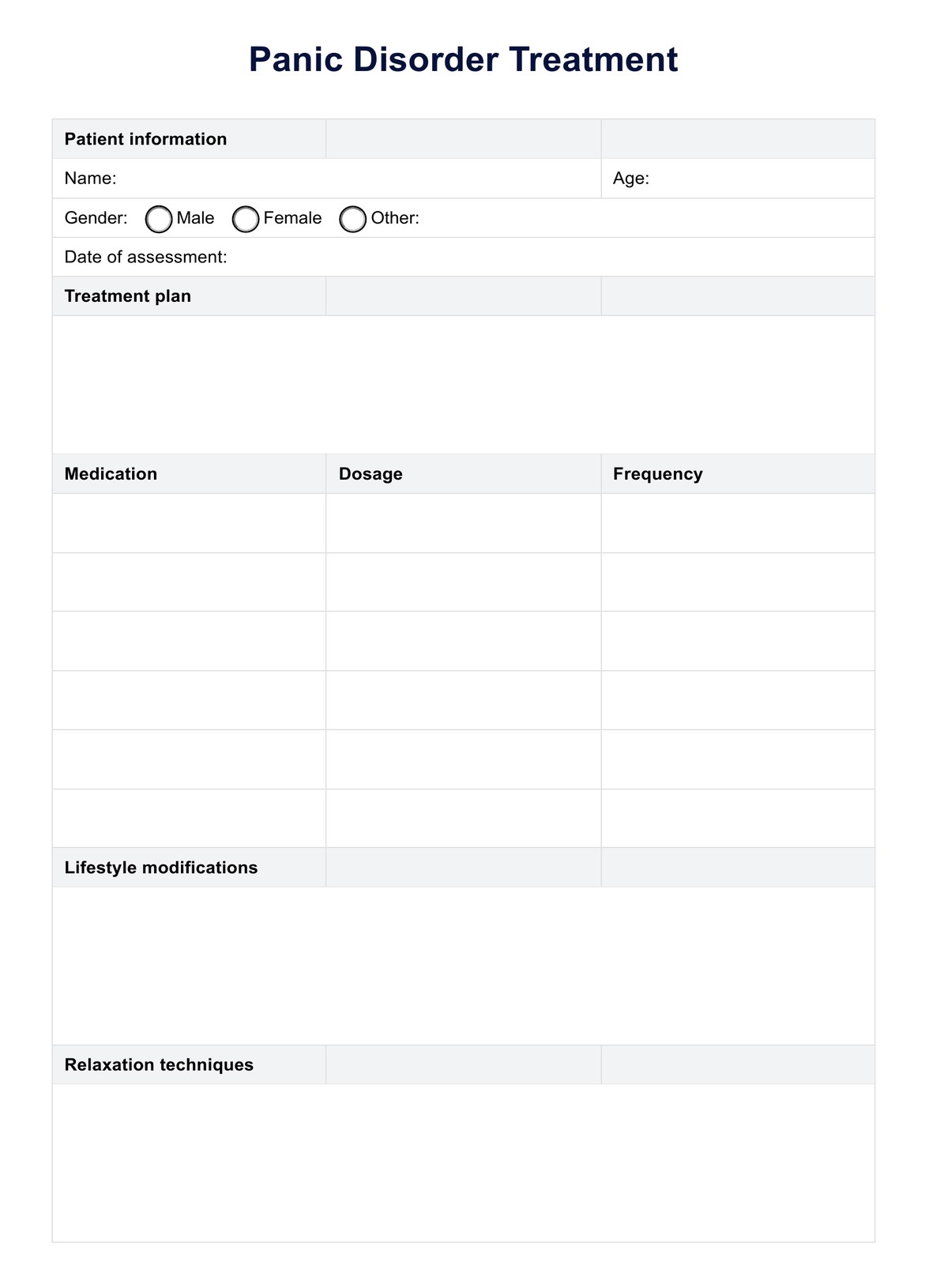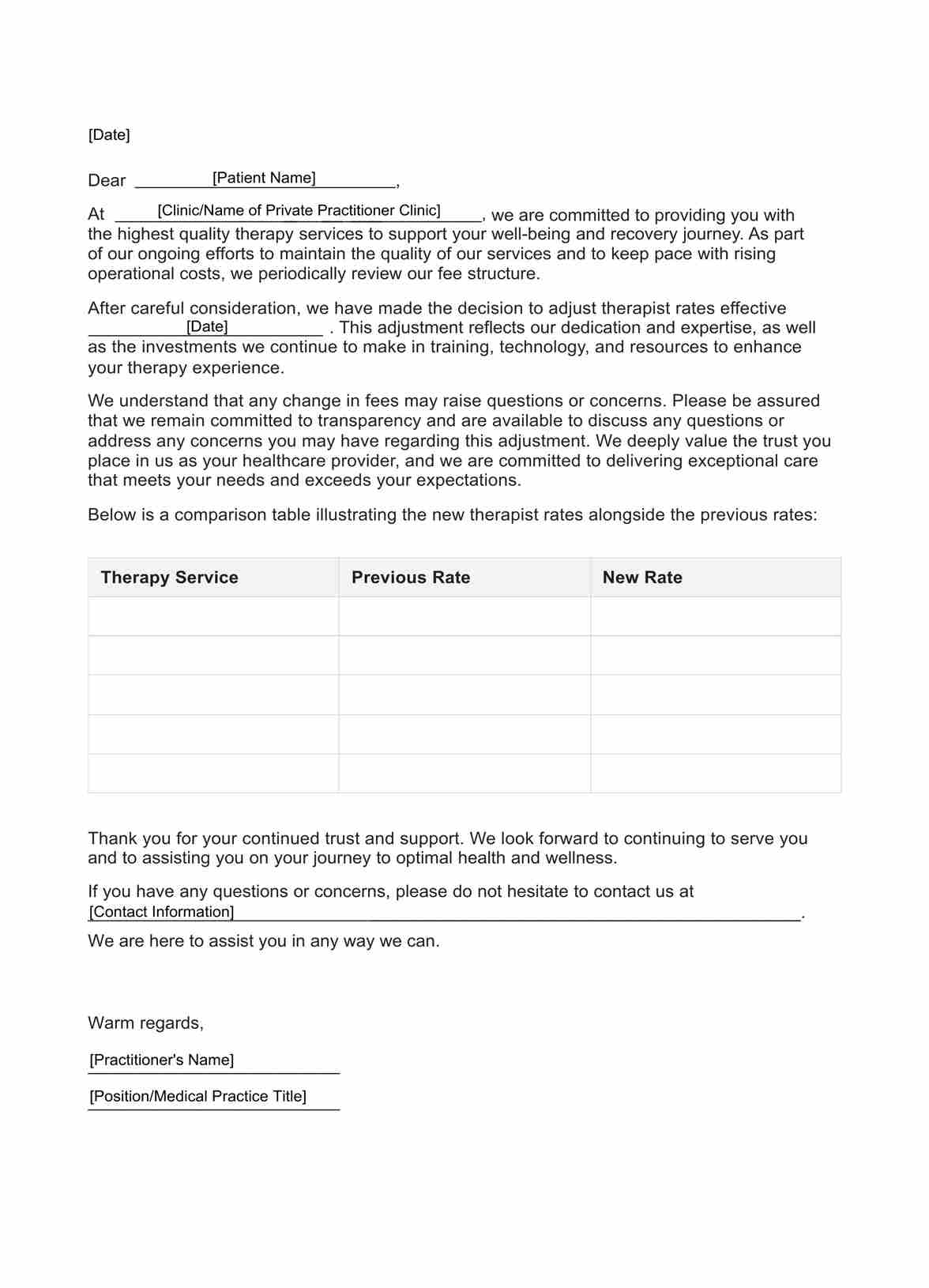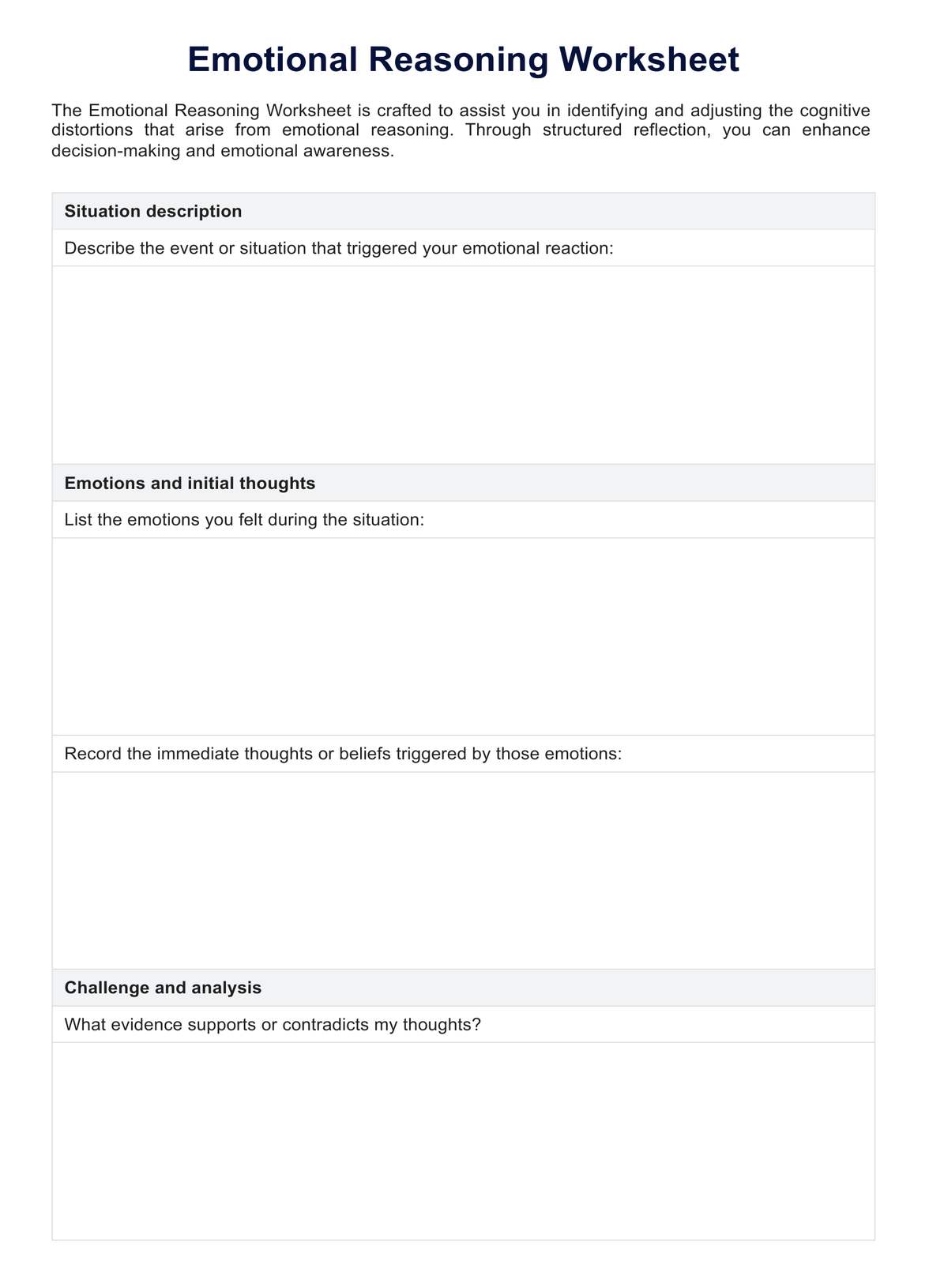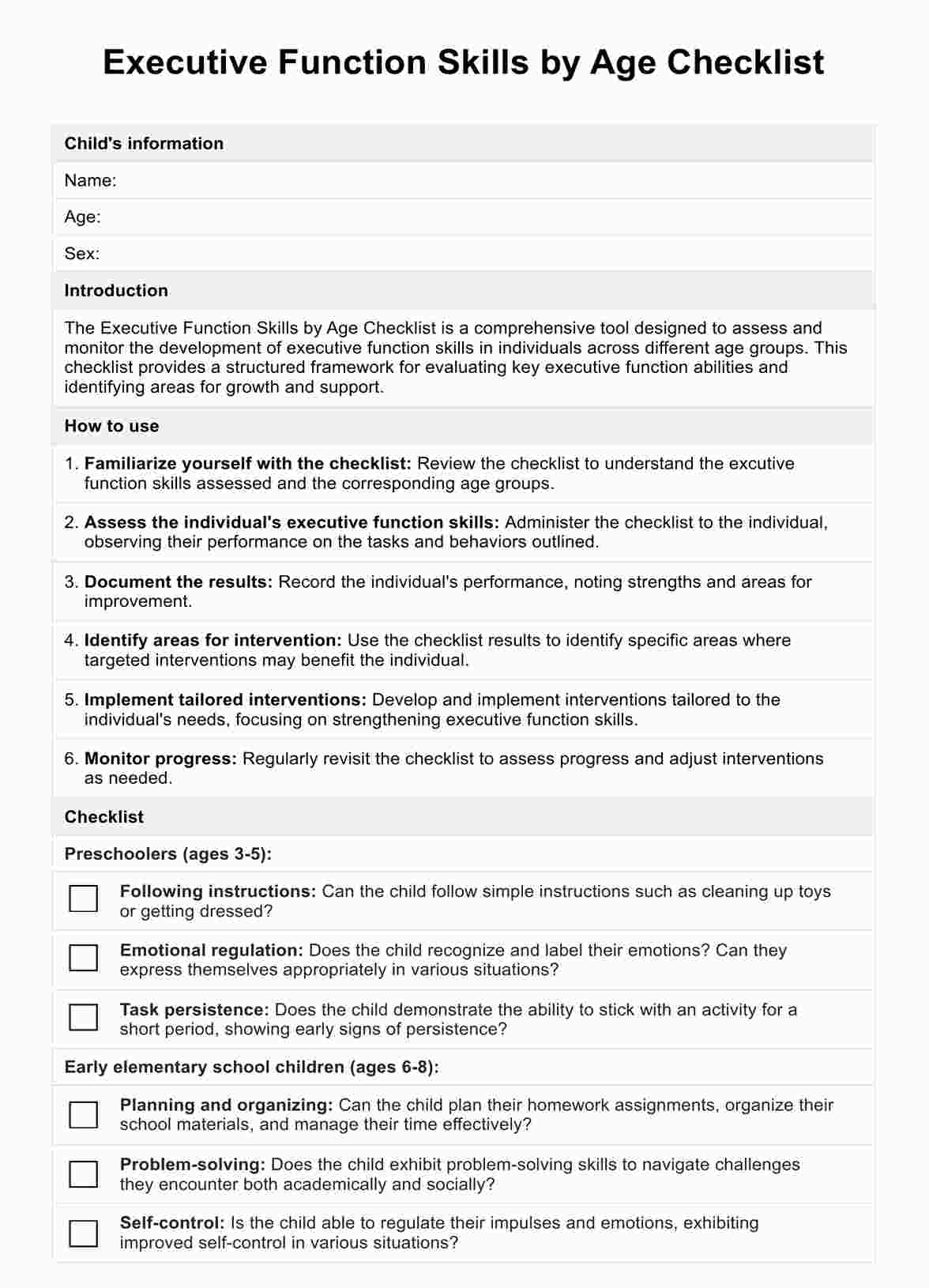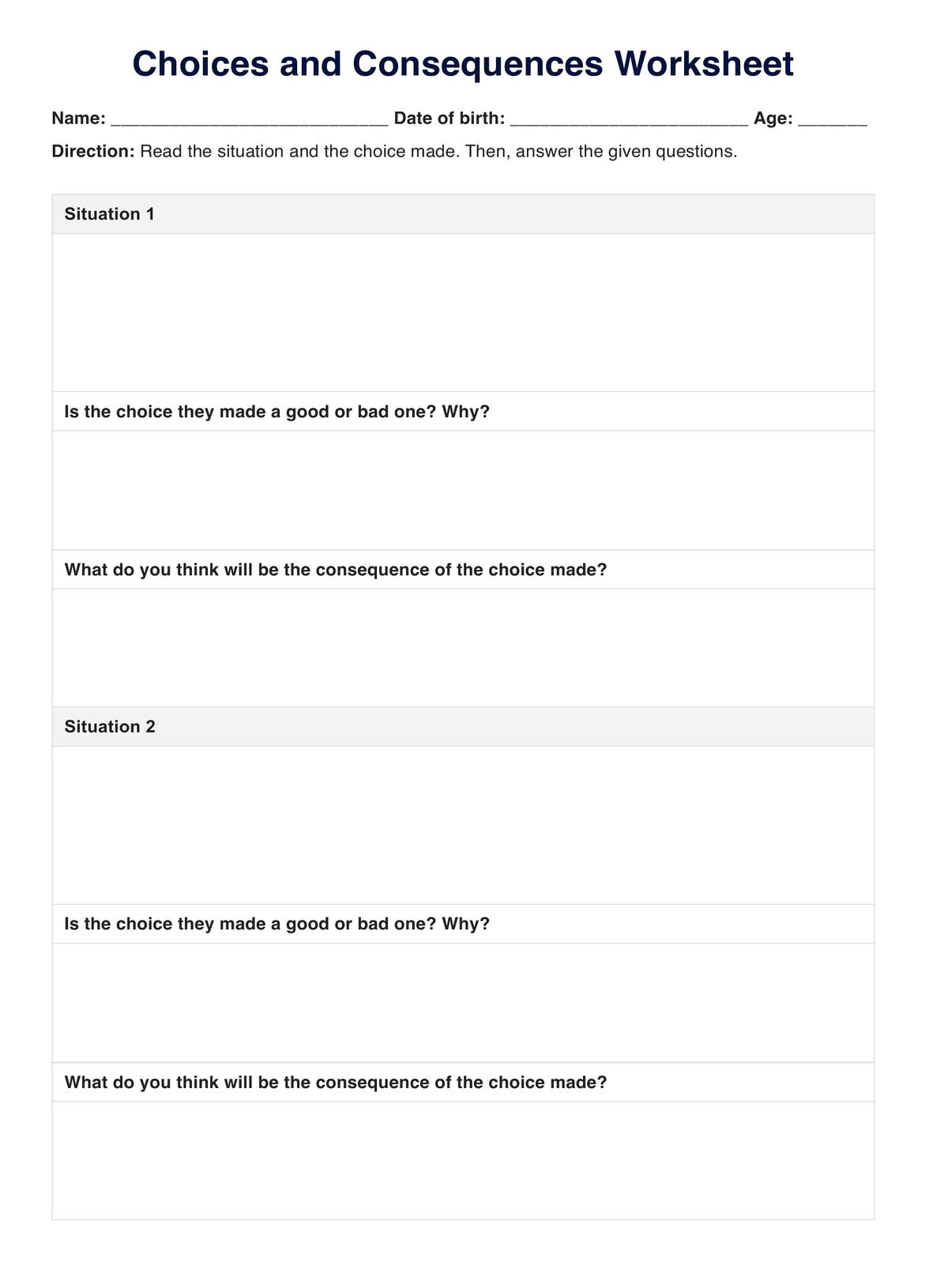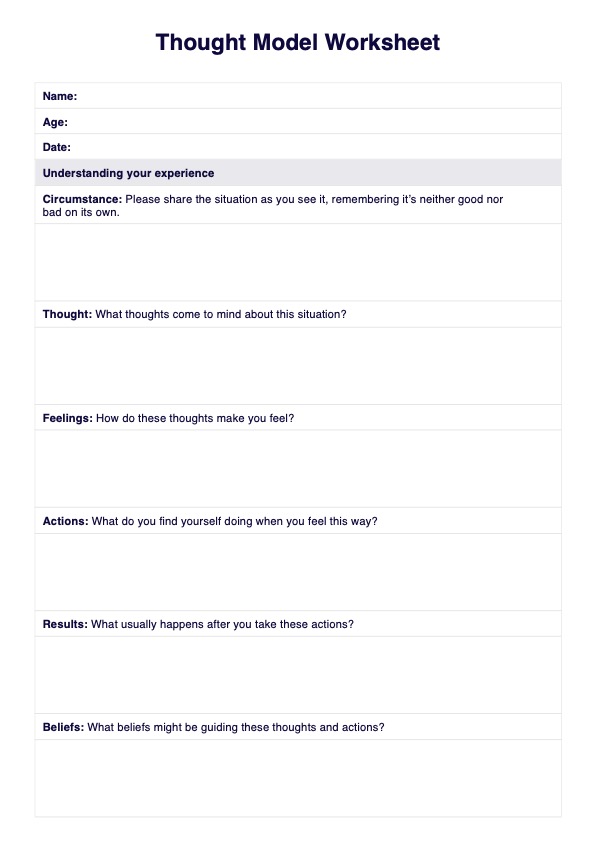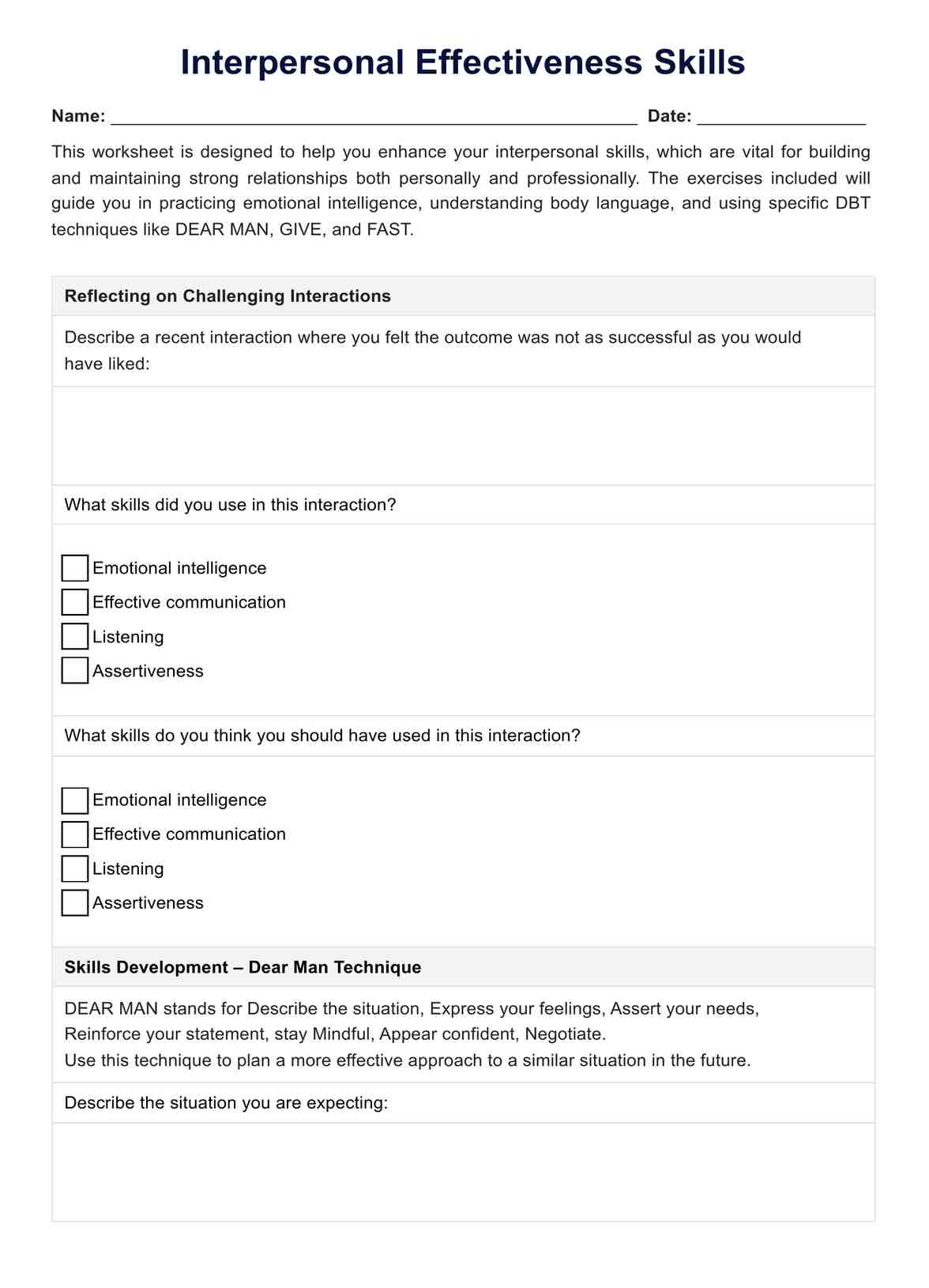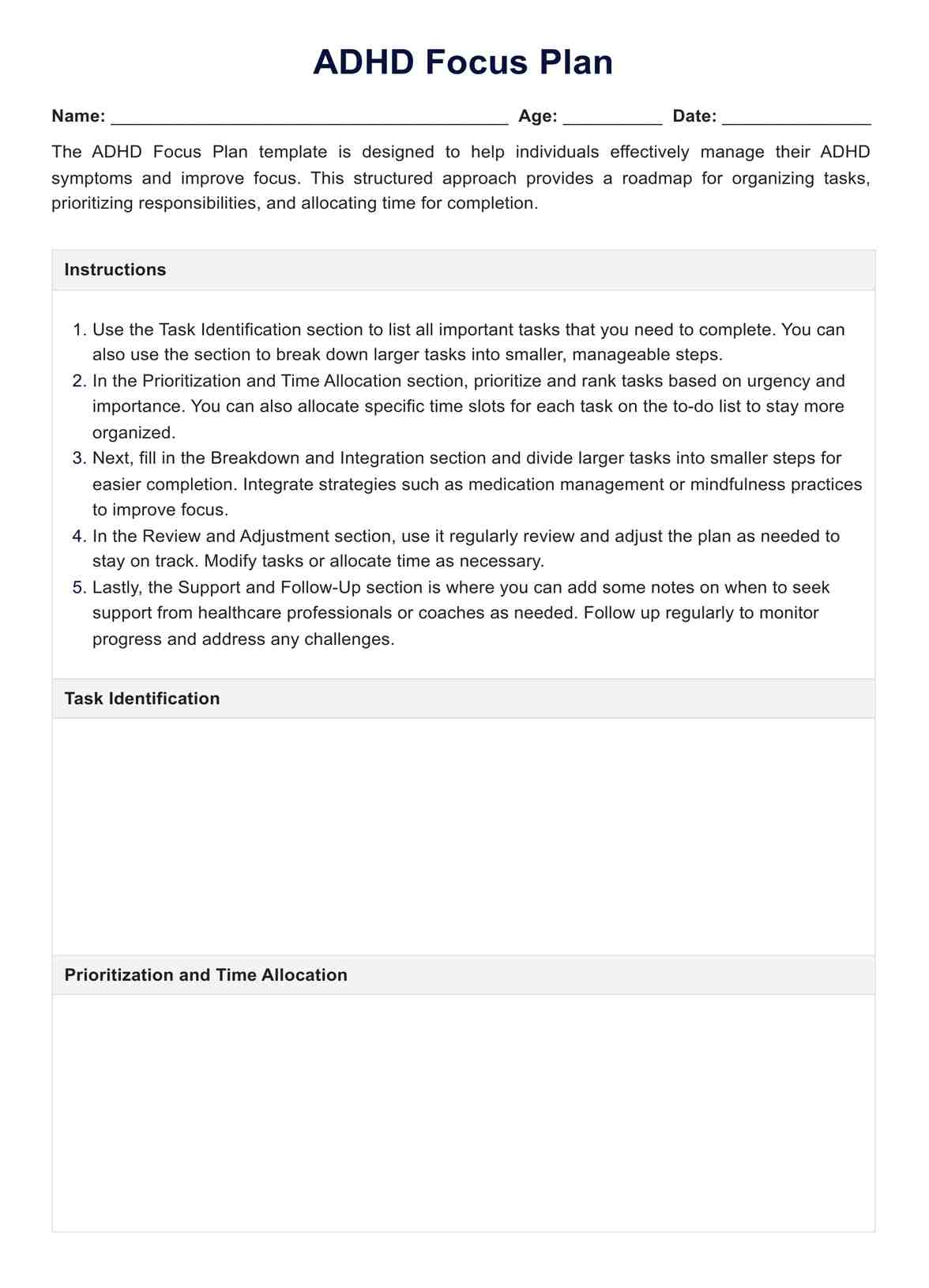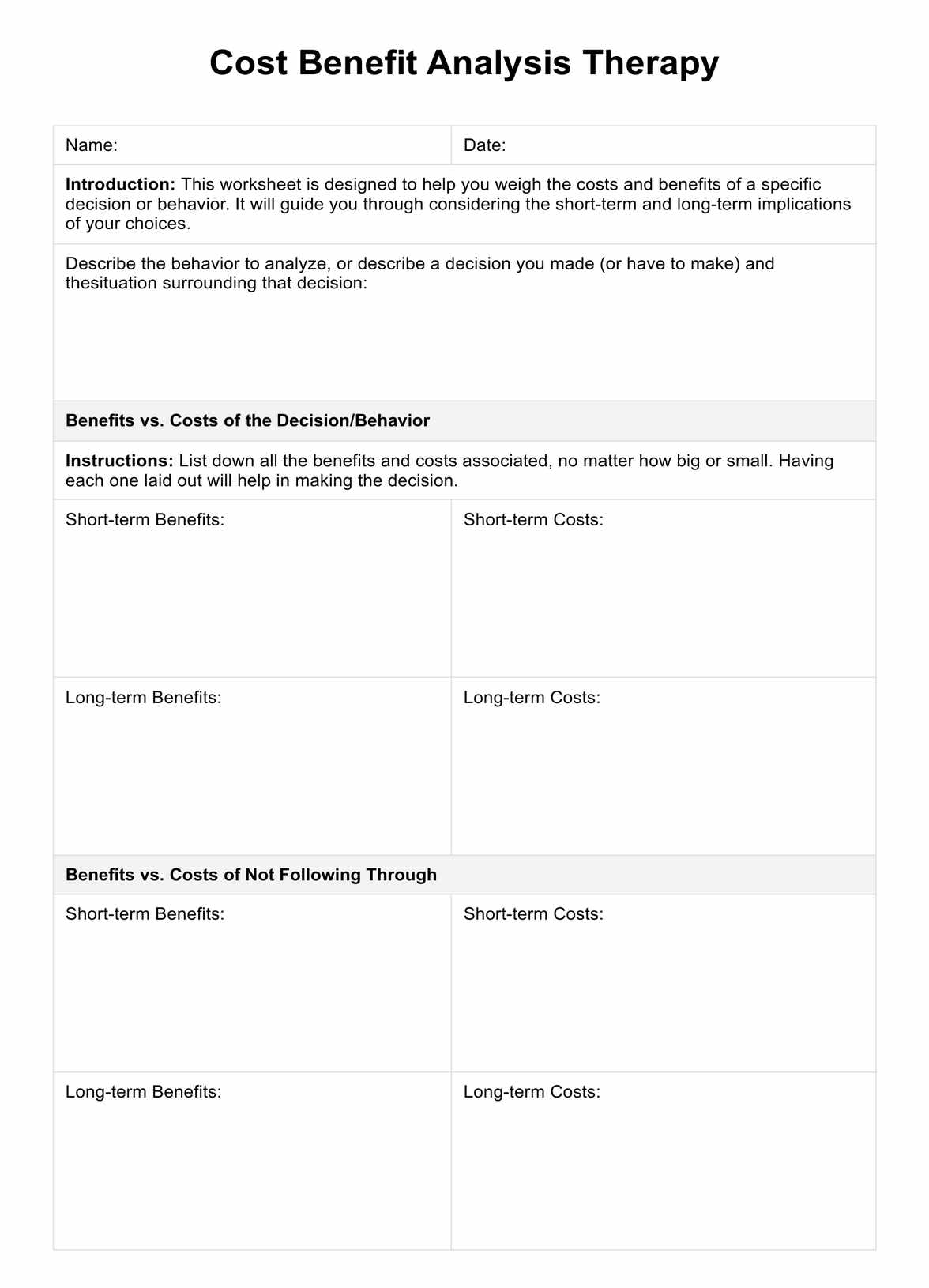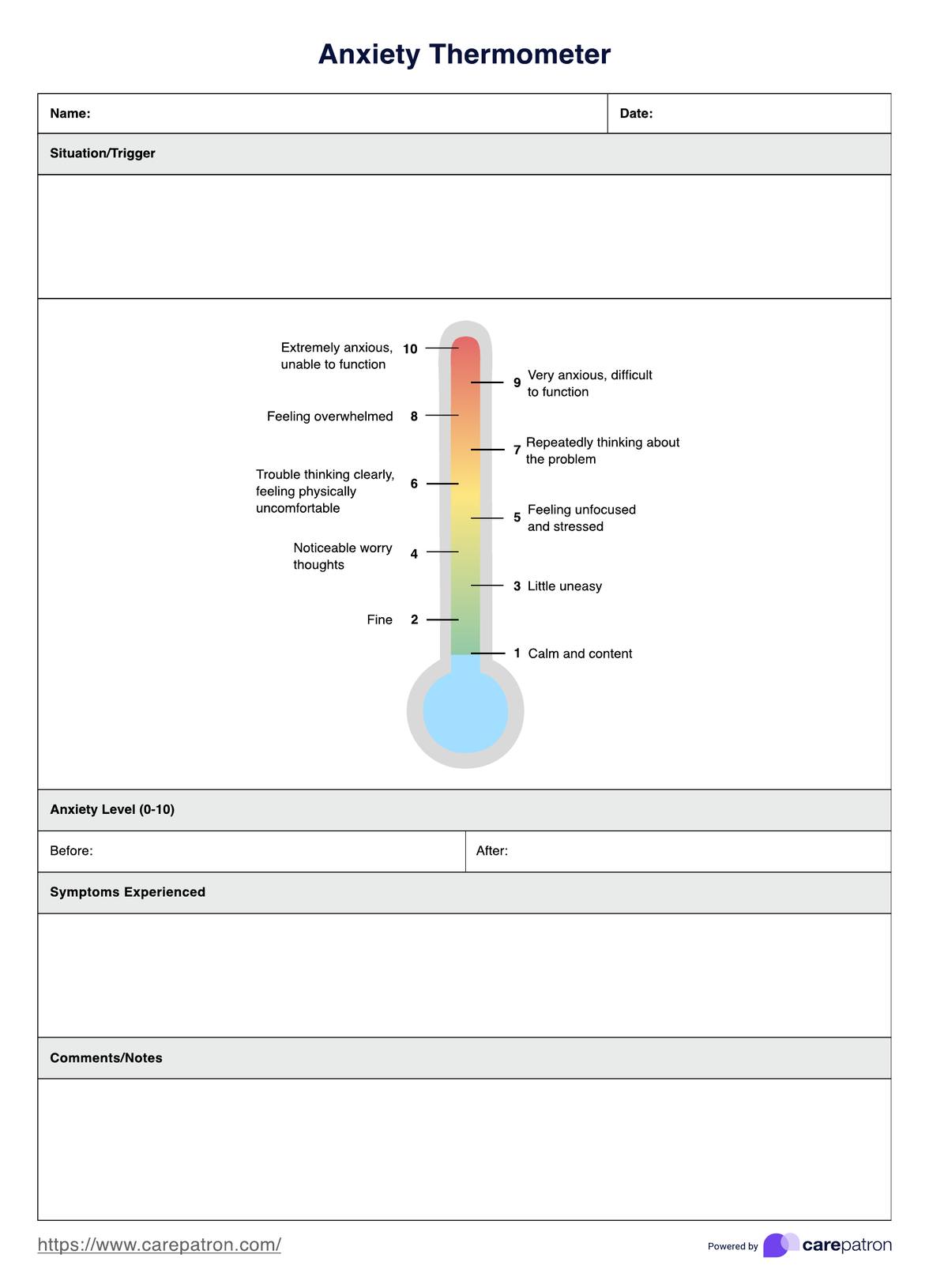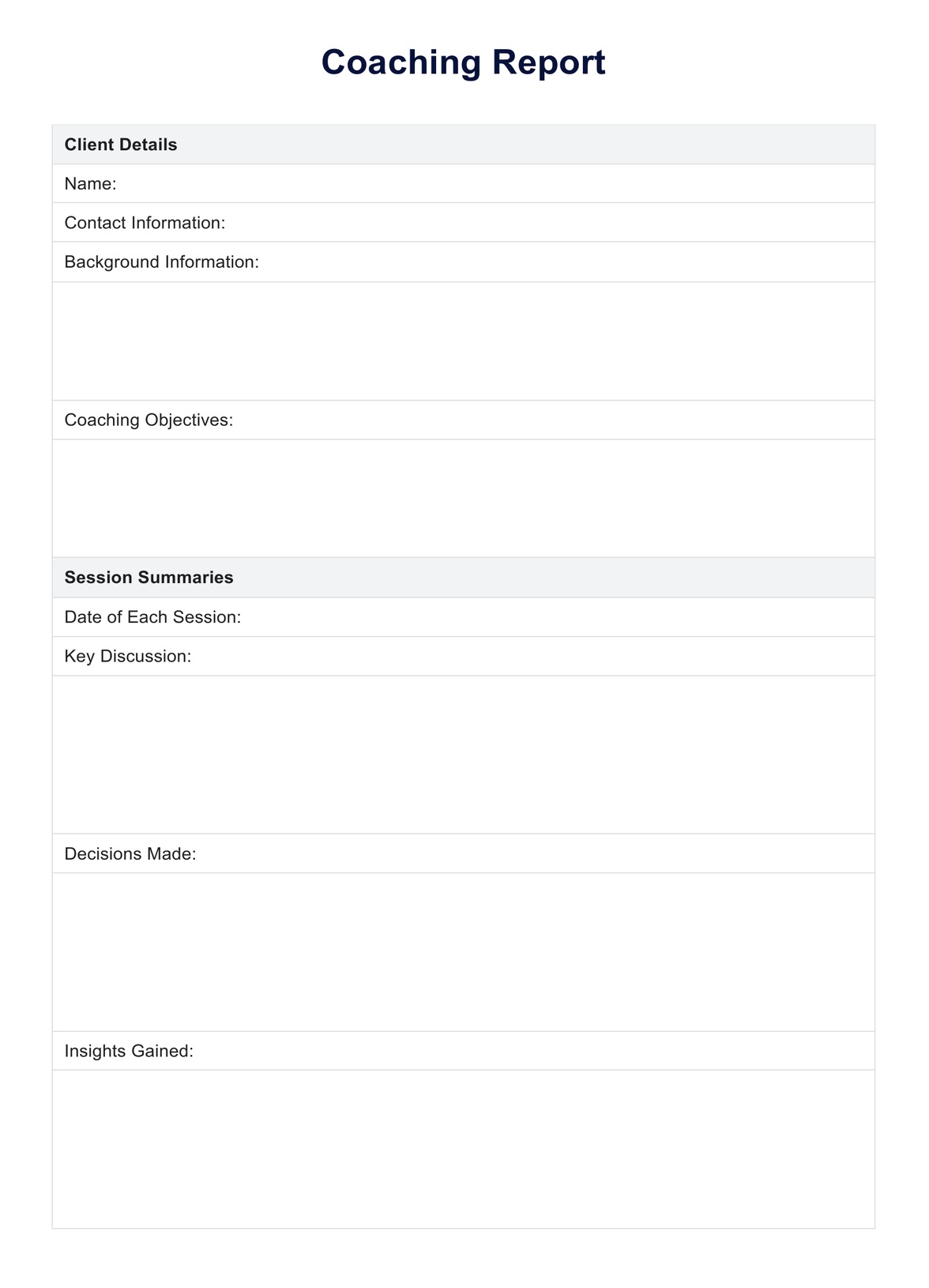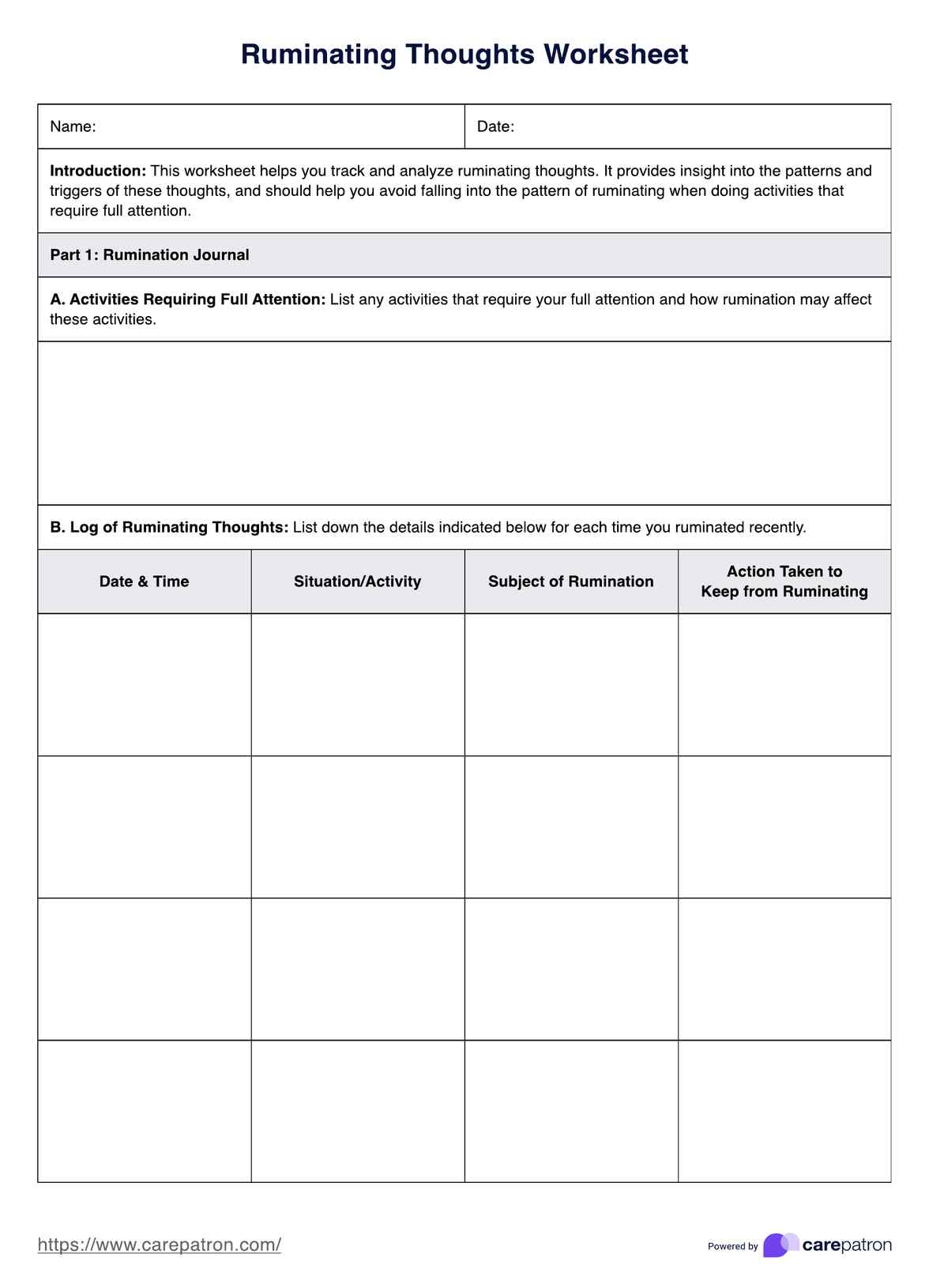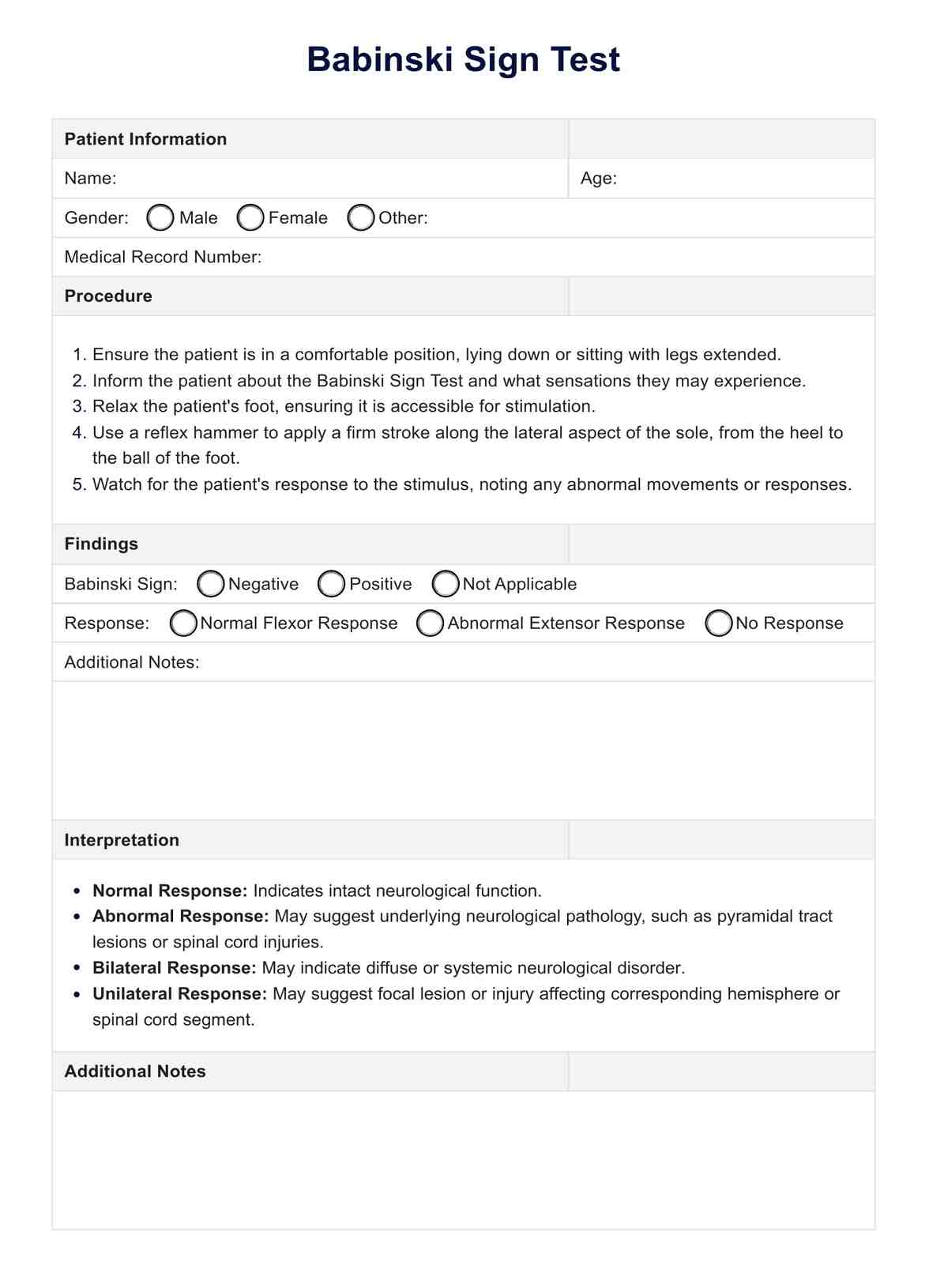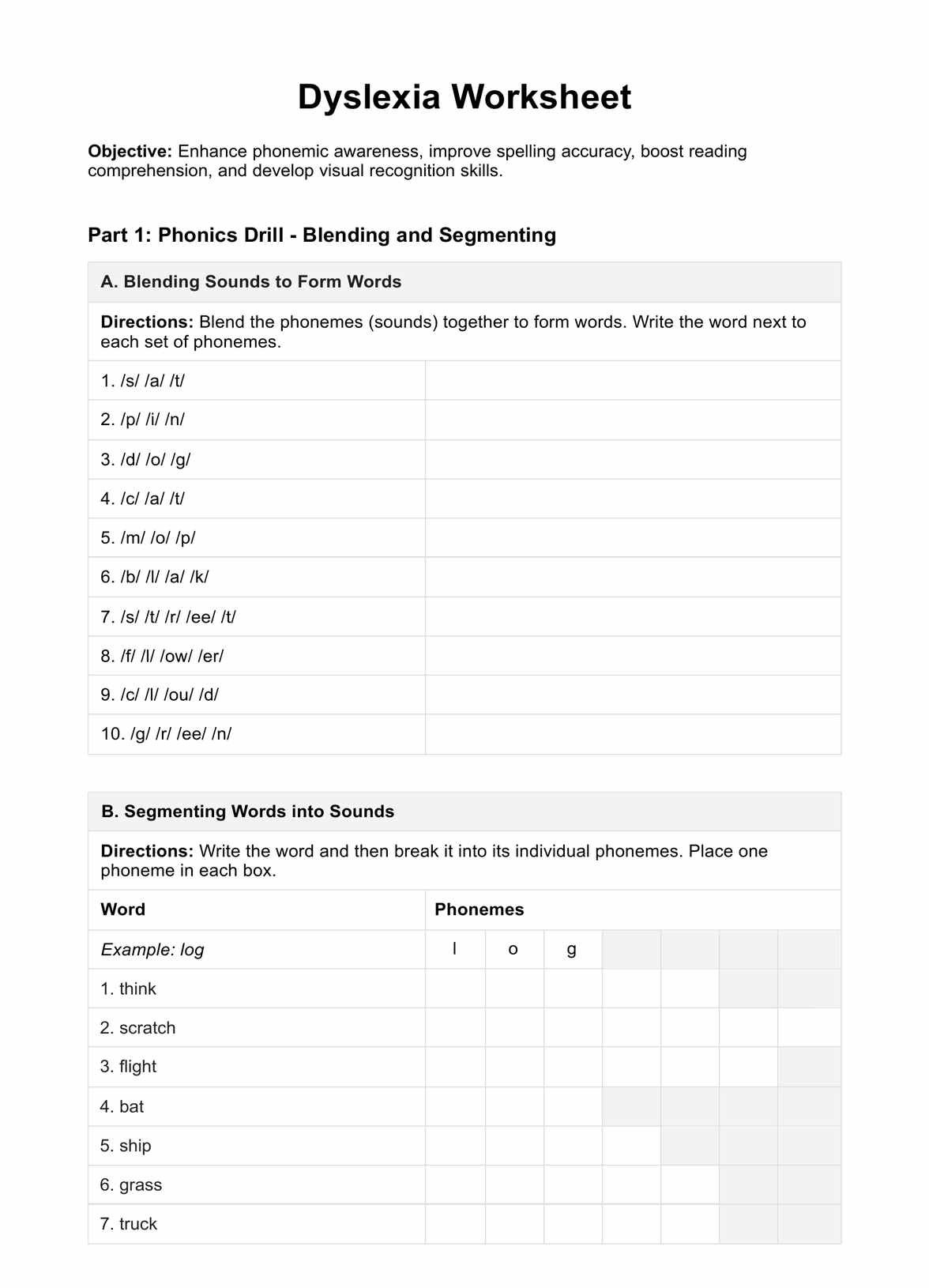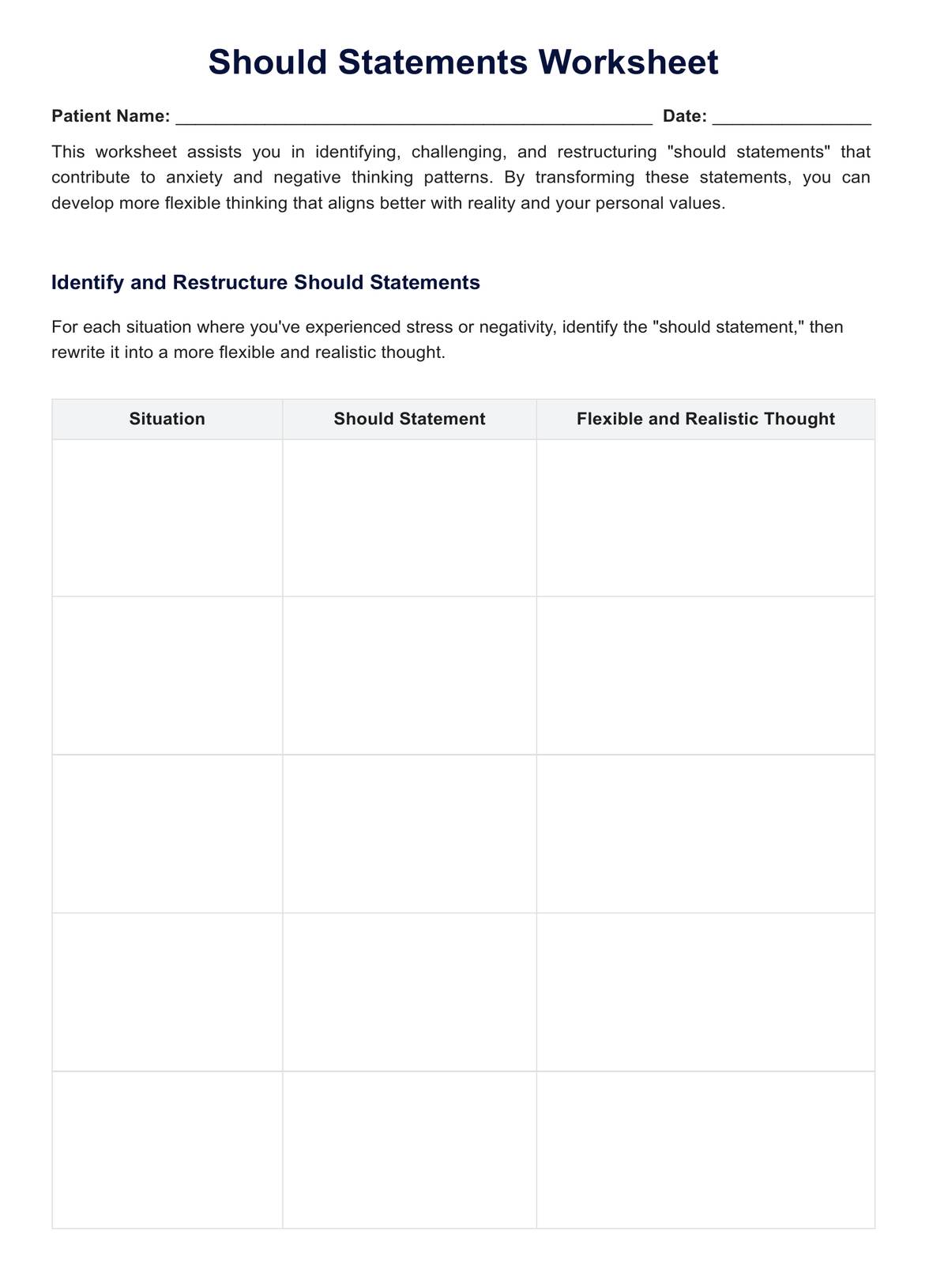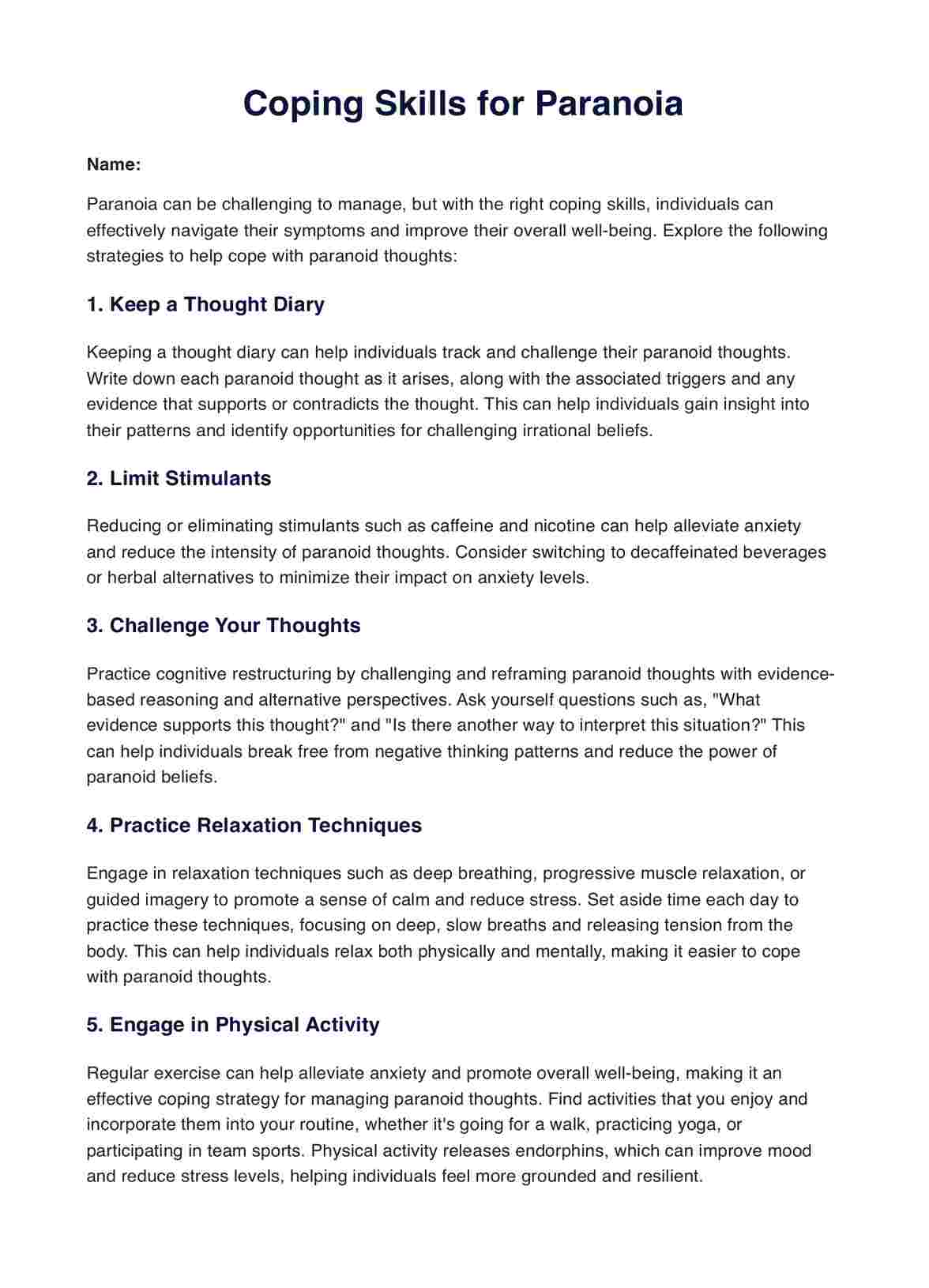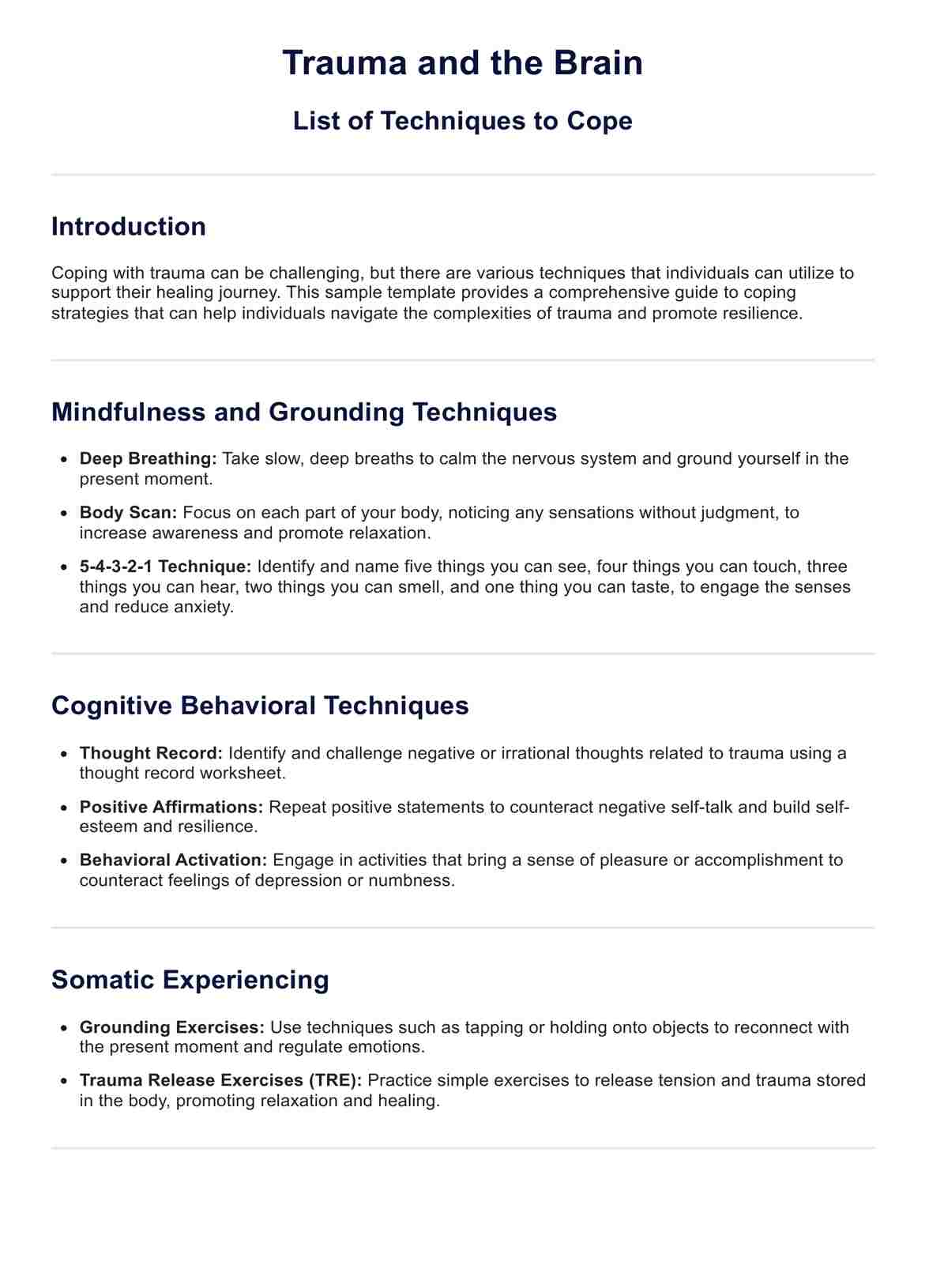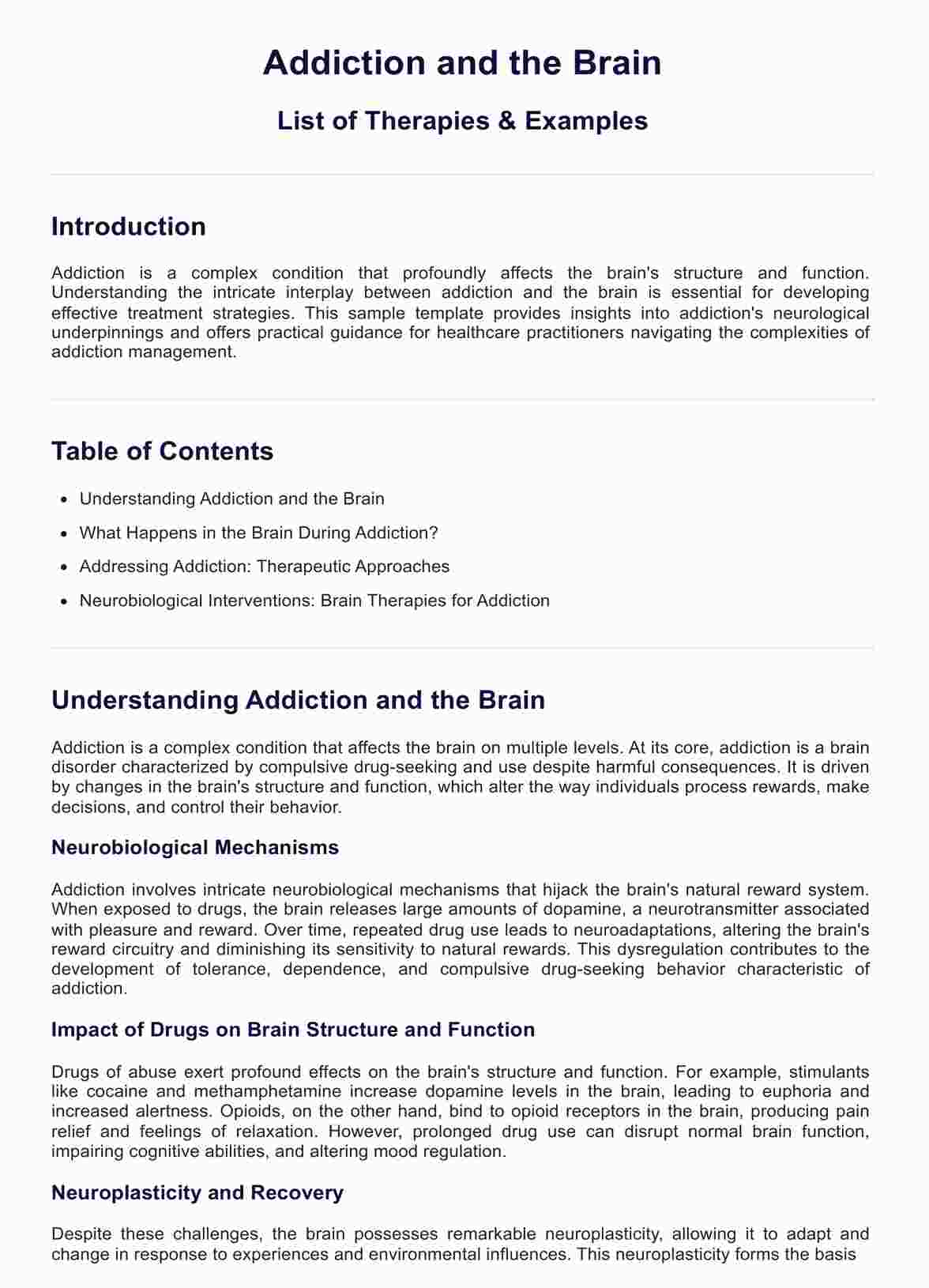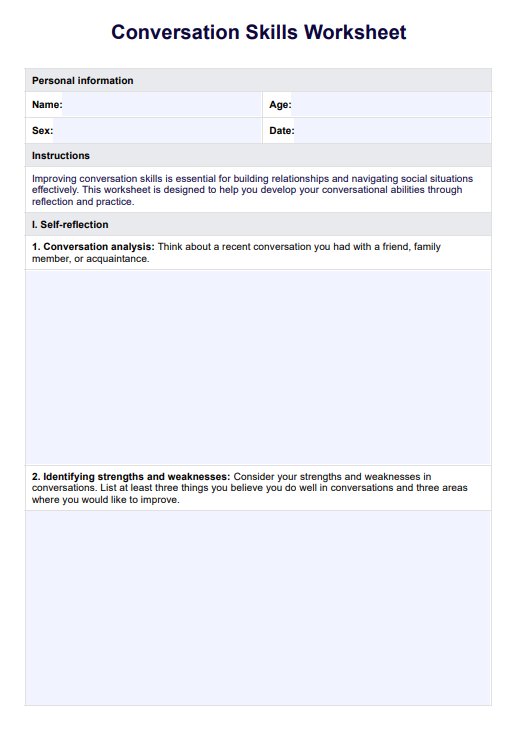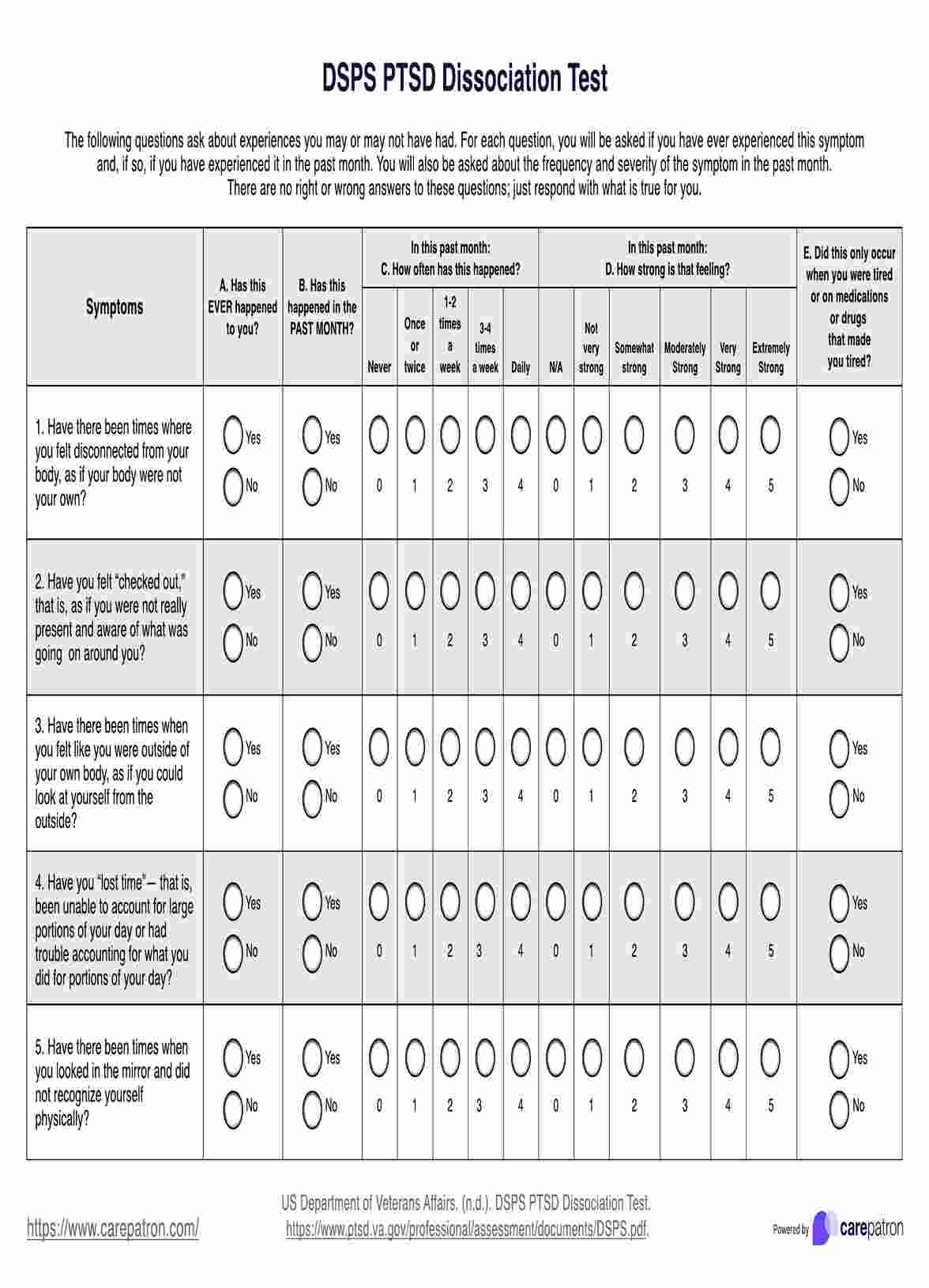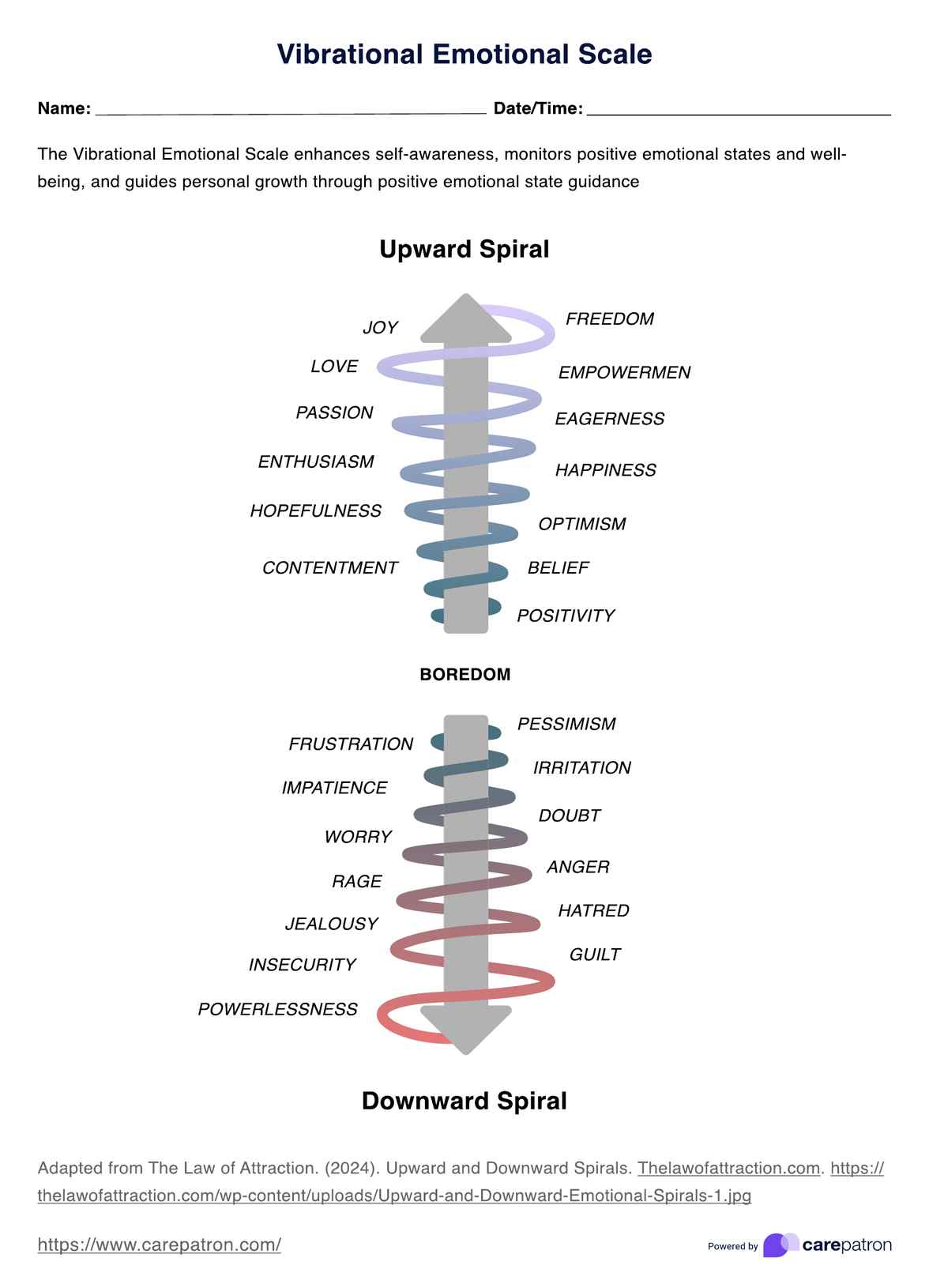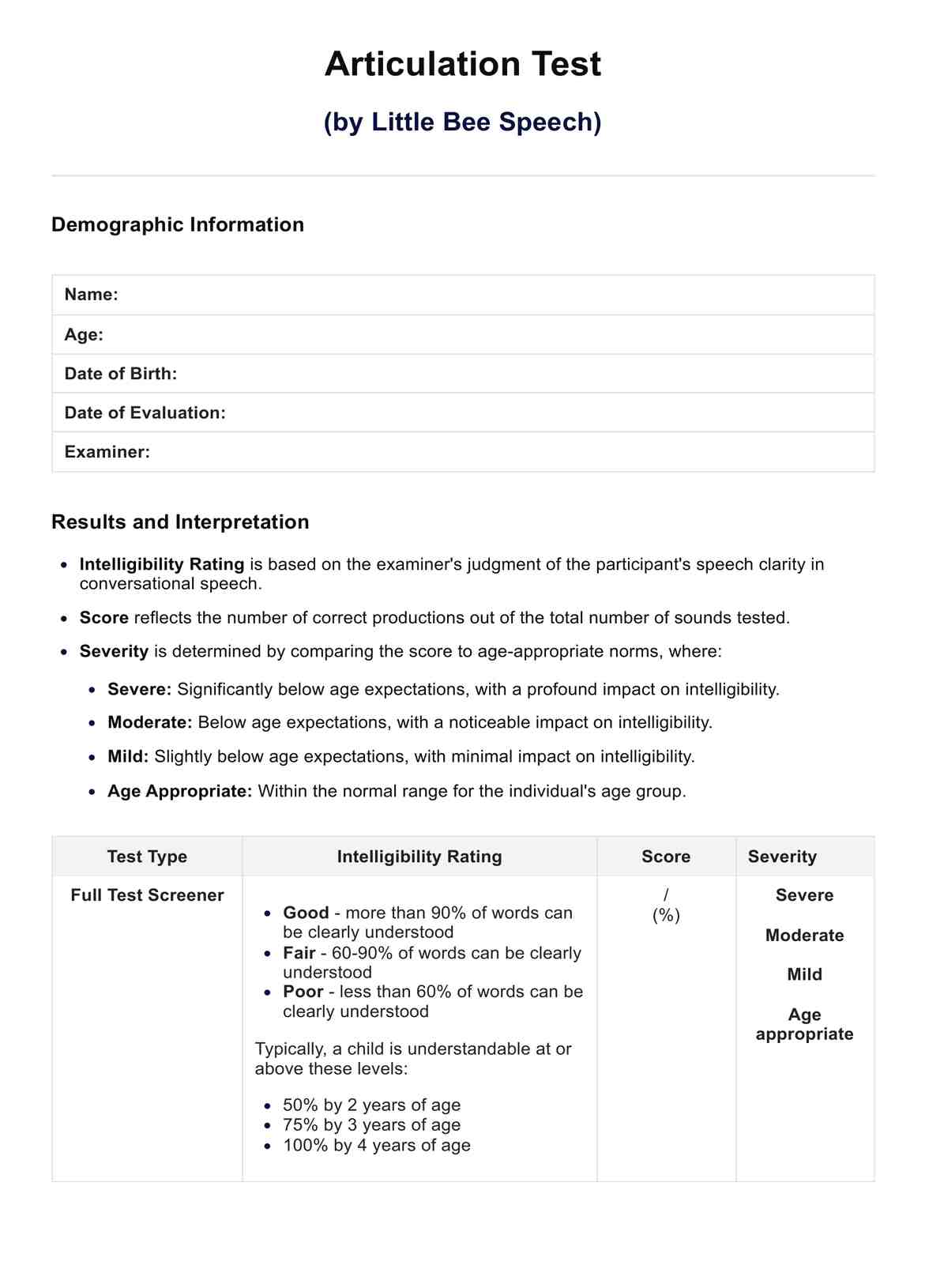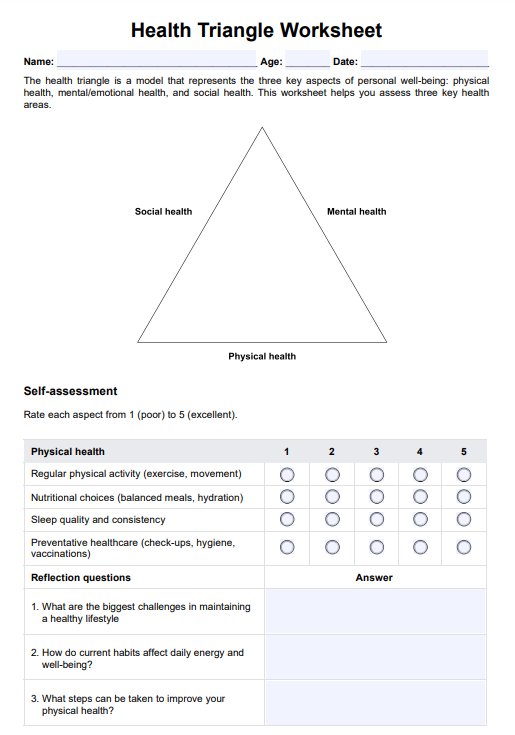Multisyllabic Word List PDF
Discover the benefits of using our Multisyllabic Word List PDF template for speech therapy. Improve patient articulation and phonological skills with structured exercises.


What does it mean when a word is multisyllabic?
A multisyllabic word is a word that consists of more than one syllable. Syllables are the individual units of sound that make up words, each containing a vowel sound. For example, the word “baby” is a two-syllable word (“ba-by”), while “basketball” is a three-syllable word (“bas-ket-ball”). Breaking down words into closed syllables, such as 'Feb-ru-ar-y' for 'February,' can aid in decoding and pronunciation.
Multi syllabic words are often more complex and more challenging to pronounce, especially for individuals with speech difficulties.
Examples of multisyllabic words
Multisyllabic words vary in complexity and length. Here are some examples:
- Two syllables: baby, bacon, balloon, bedtime
- Three syllables: bicycle, blueberry, principal, telephone
- Four syllables: celebration, librarian, impossible, vegetable
- Five syllables: personality, refrigerator, communication, university
These words are grouped based on their number of syllables, providing a structured way to practice pronunciation and articulation.
Why do some people have difficulty with multisyllabic words?
Difficulties with multisyllabic words can arise from various factors, including developmental speech disorders, neurological conditions, and lack of practice. Children with phonological disorders, for example, might find it challenging to sequence the sounds in longer words correctly. Achieving correct production of multisyllabic words often requires targeted practice and guidance. Adults who have suffered a stroke or other brain injuries may also struggle with multisyllabic words due to impairments in their speech and language processing centers.
Additionally, individuals learning English as a second language may find multisyllabic words difficult due to unfamiliarity with the language’s phonetic patterns and stress rules. Addressing these challenges typically involves targeted speech therapy and consistent practice to improve articulation and fluency. Improving phonological awareness skills can significantly help in decoding and pronouncing multisyllabic words.
Multisyllabic Word List PDF Template
Multisyllabic Word List PDF Example
How to use our Multisyllabic Word List PDF template
Our Multisyllabic Word List PDF template is a valuable tool for speech therapists to assist clients in practicing and improving their articulation and pronunciation of multisyllabic words. This guide provides steps on how to use the template effectively in therapy sessions.
Step 1: Download the template
First, download the Multisyllabic Word List PDF template via the Carepatron app or via the link on this page. Ensure you have a reliable PDF reader installed on your device to view and print the document.
Step 2: Print the word list
Print the PDF template to have a physical copy of the multisyllabic word list. This makes it easier to use during face-to-face therapy sessions and lets you make notes directly on the printout.
Step 3: Introduce the word list to your client
Explain the purpose of the multisyllabic word list to your client. The word list helps clients decode multisyllabic words, improving their reading and pronunciation skills. Emphasize that practicing these words can improve their speech clarity and fluency. Highlight how the words are categorized by syllable count, making the practice sessions more structured and focused.
Step 4: Practice the words
Guide your client through the word list, starting with two-syllable words and gradually moving to more complex words. Encourage your client to practice decoding each word by breaking it down into syllables. Encourage your client to say each word slowly and clearly, paying attention to the pronunciation of each syllable. Provide feedback and corrections as needed.
Step 5: Track progress
Regularly track your client’s progress by noting improvements in their articulation and pronunciation of multisyllabic words. Regularly tracking progress helps make faster progress by identifying areas needing more focus. Adjust the difficulty level based on their progress, ensuring a consistent challenge for their development.
How speech therapists can benefit from this PDF template
Using a structured Multisyllabic Word List PDF template can significantly enhance the effectiveness and efficiency of speech therapy sessions. The template provides a comprehensive list of multisyllabic words, making it easier for therapists to plan their sessions. Below are three key benefits that speech therapists can gain from utilizing this resource.
Comprehensive resource
This PDF template serves as a comprehensive resource for speech therapists, offering a wide range of multisyllabic words organized by the number of syllables. This organization helps therapists easily select appropriate words based on the specific needs of their patients, facilitating targeted and effective therapy sessions.
Structured therapy sessions
With this template, speech therapists can structure their sessions more efficiently. The categorized word lists allow therapists to systematically address different syllable challenges, ensuring a well-rounded approach to improving a patient’s articulation and phonological skills.
Enhanced patient progress
Using a standardized list of multisyllabic words helps track patient progress over time. Therapists can document which words patients struggle with and which they master, allowing for personalized adjustments in therapy plans and better outcomes for patients.
Commonly asked questions
Multisyllabic words are crucial in speech therapy because they help patients practice and improve their articulation, phonological awareness, and overall speech clarity. They are essential for individuals with speech sound disorders.
Speech therapists use multisyllabic word lists to target specific speech sounds and patterns. They can create exercises and activities around these words to help patients practice pronunciation, improve their speech rhythm, and enhance their language skills.
Patients, especially those with speech sound disorders or neurological conditions, may struggle with sequencing the sounds correctly, stress patterns, and overall pronunciation. Multisyllabic words can be more complex, requiring more coordination and control.
Parents can support their children by practicing multisyllabic words in fun and engaging ways, such as through games, reading together, and encouraging daily practice. Consistent home practice is essential for students to progress faster in speech therapy, and it helps reinforce the skills learned in therapy sessions.
Other tools that complement multisyllabic word lists include flashcards, speech therapy apps, visual aids, and interactive games. These tools help make practice more engaging and compelling, enhancing the therapy experience.


